Foods Packed With Collagen for Younger-Looking Skin Naturally
Radiant, youthful skin isn’t just about what you slather on—it’s deeply rooted in what you eat. While skincare products can smooth and hydrate from the outside, true skin resilience starts from within. Collagen, the protein responsible for skin’s firmness and elasticity, naturally declines with age—but the right foods can help you turn back the clock. That’s why we’ve expanded our list of collagen-packed foods — a science-backed guide to nourishing your glow from the inside out. From classic staples like bone broth to underrated powerhouses like citrus, leafy greens, and even fish skin, these foods help replenish collagen stores and trigger your body’s own production. Forget fads and filters—if you want skin that’s firm, plump, and truly healthy, start at the source: your plate. This isn’t about miracle cures—it’s about smart, everyday choices that quietly restore what time takes away. Ready to glow? Let’s dig in.
1. Bone Broth – A Traditional Elixir
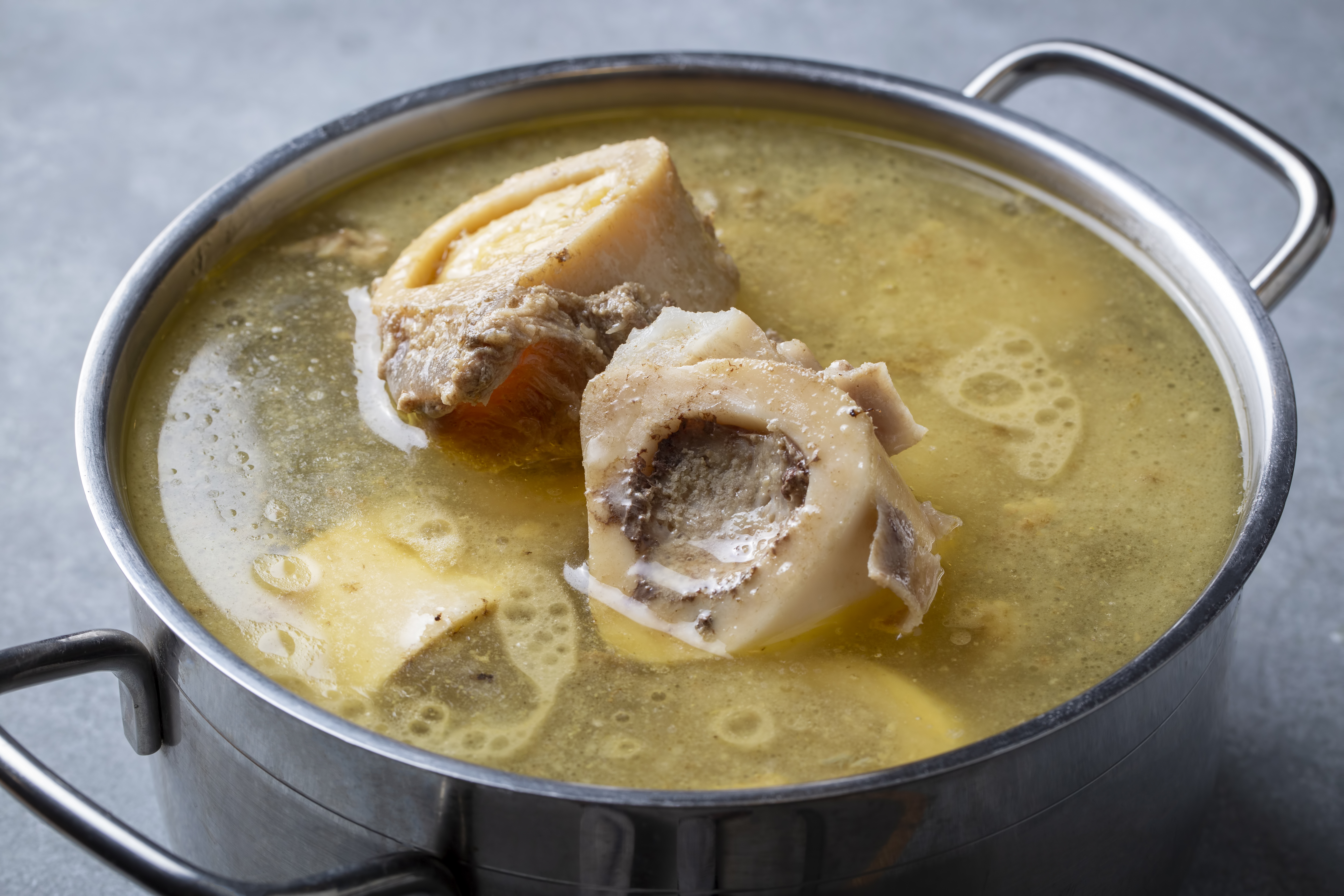
Bone broth has been a staple in traditional diets worldwide, revered for its healing and nourishing properties. Made by simmering animal bones and connective tissues, bone broth is rich in collagen, gelatin, and essential amino acids. These nutrients are easily absorbed by the body, promoting collagen production and supporting skin health. In addition to its collagen content, bone broth contains minerals like calcium, magnesium, and phosphorus, which further contribute to skin vitality. This section will explore the benefits of bone broth, how to incorporate it into your diet, and its historical significance in various cultures.
2. Fish – The Marine Source of Youth
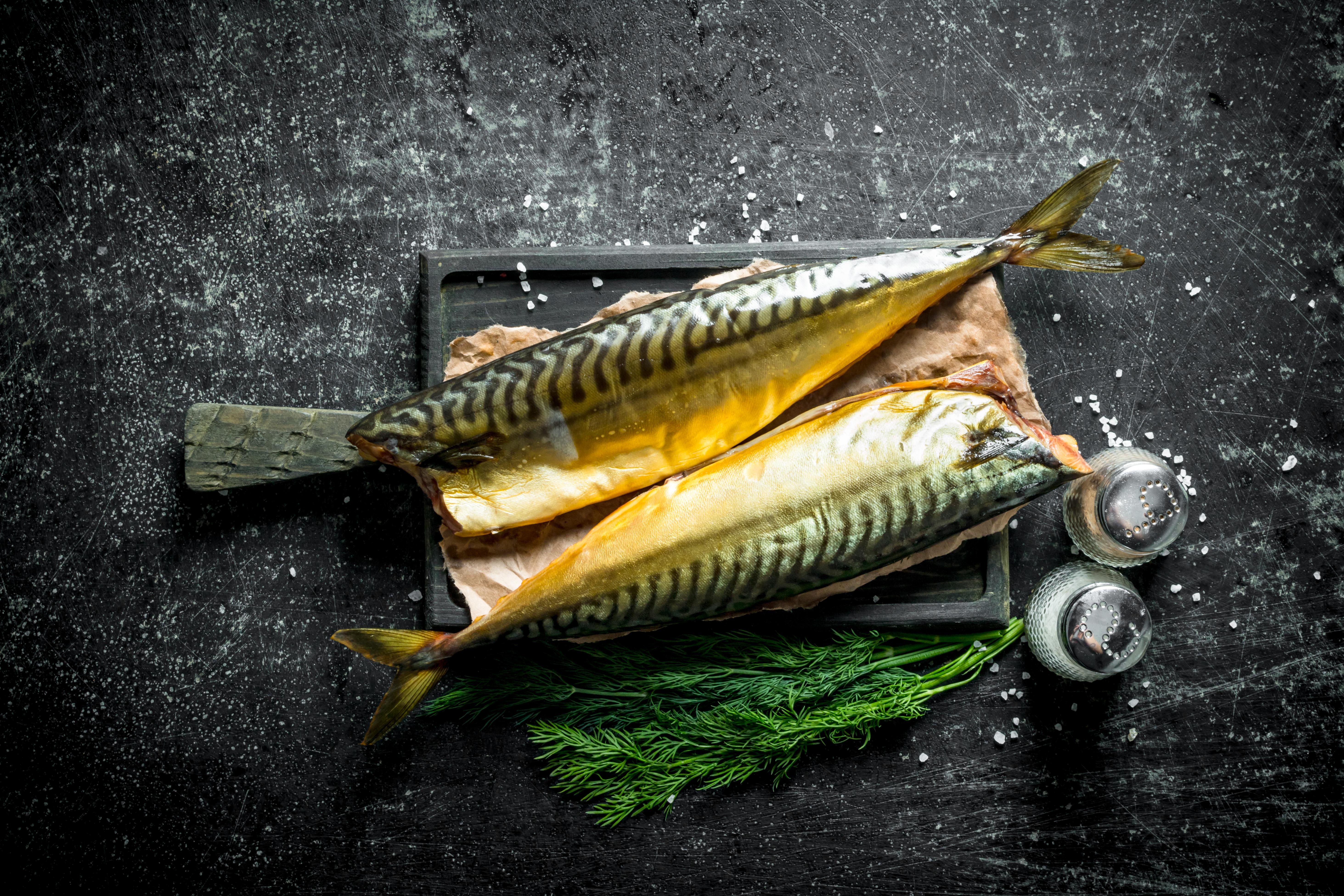
Fish, particularly fatty varieties like salmon, mackerel, and tuna, are celebrated for their omega-3 fatty acids, which support skin health by reducing inflammation and promoting moisture retention. However, fish also provide an excellent source of marine collagen, which is known for its high bioavailability and effectiveness in promoting skin elasticity and hydration. Marine collagen peptides, derived from fish skin and scales, are easily absorbed by the body, making them an ideal choice for those looking to boost their collagen intake. This section will discuss the benefits of marine collagen, the best fish sources, and tips for sustainable seafood consumption.
3. Eggs – The Versatile Collagen Booster
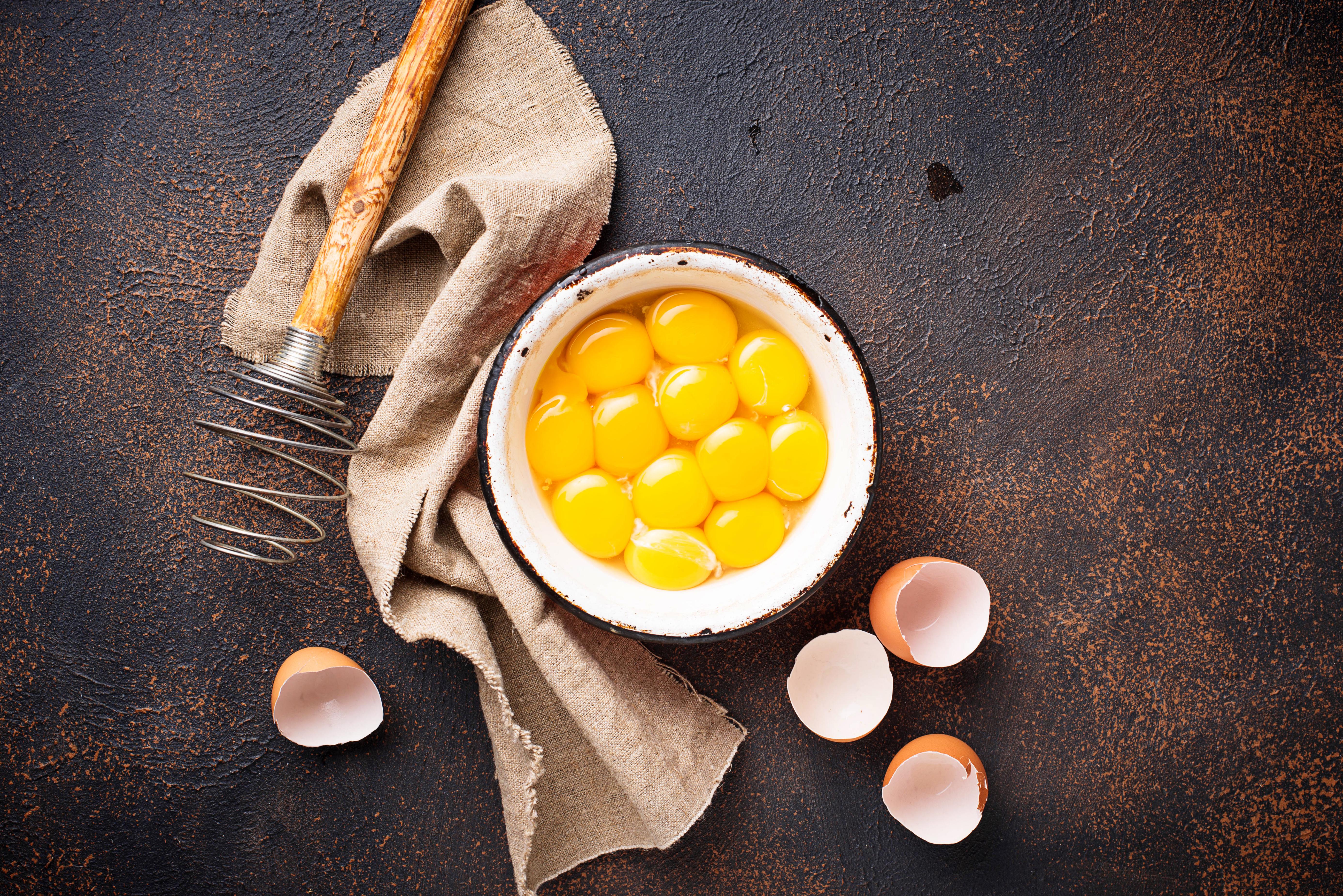
Eggs are a versatile and nutrient-dense food that can contribute significantly to collagen production. While they do not contain collagen directly, eggs are rich in proline, an amino acid that is essential for collagen synthesis. Additionally, egg whites contain lysine, another amino acid that supports collagen formation. The yolk provides vital nutrients like vitamin D and healthy fats, which aid in maintaining skin health. This section will explore the nutritional profile of eggs, their role in collagen production, and creative ways to incorporate them into your diet for optimal skin benefits.
4. Citrus Fruits – Vitamin C Powerhouses
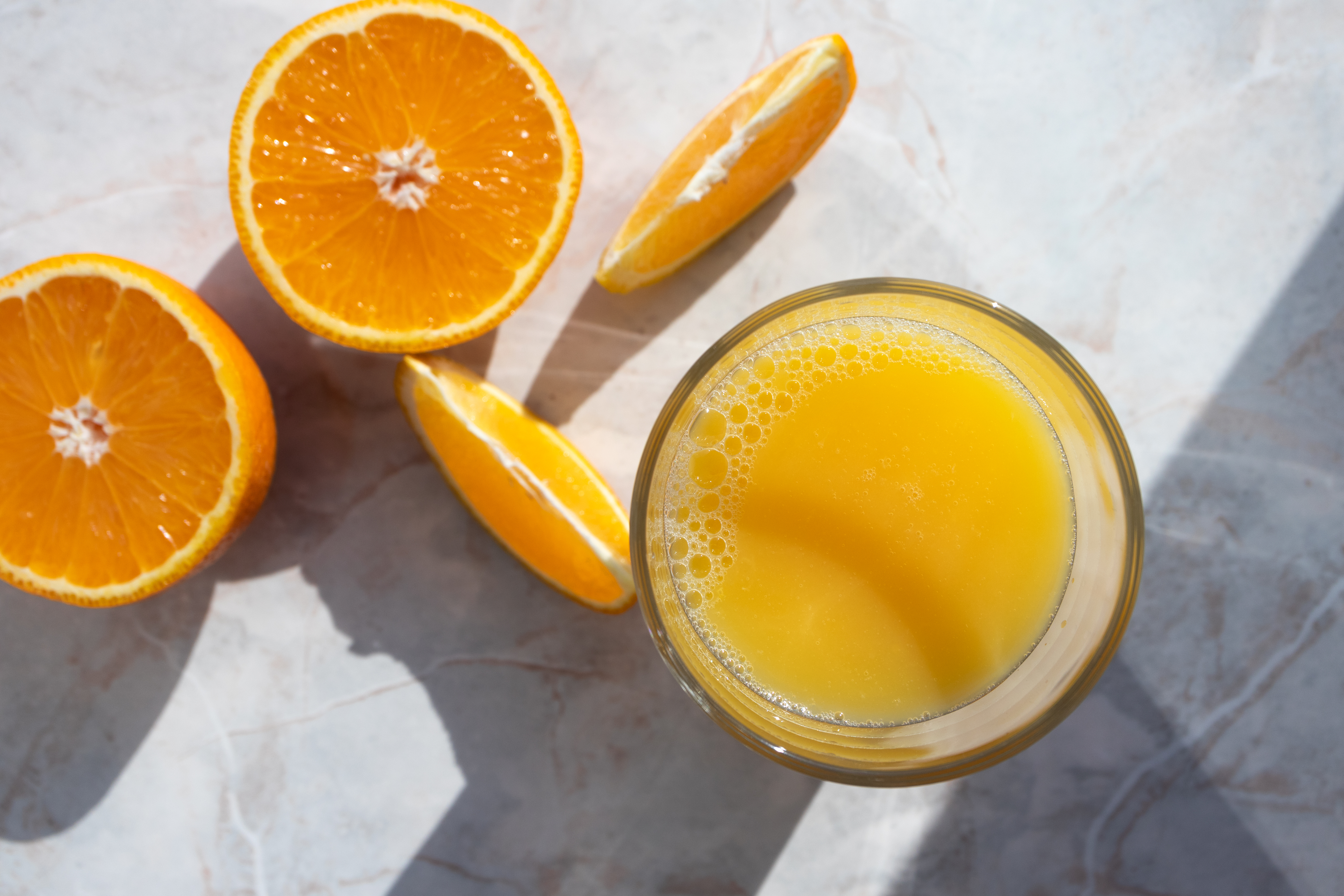
Vitamin C is a critical nutrient for collagen synthesis, as it helps stabilize the collagen molecule and aids in its production. Citrus fruits such as oranges, lemons, limes, and grapefruits are rich in vitamin C, making them essential for skin health. These fruits also contain antioxidants that protect the skin from free radical damage, further supporting a youthful complexion. This section will examine the role of vitamin C in collagen production, the benefits of citrus fruits for skin health, and creative ways to incorporate them into your daily diet.
5. Berries – Antioxidant-Rich Allies
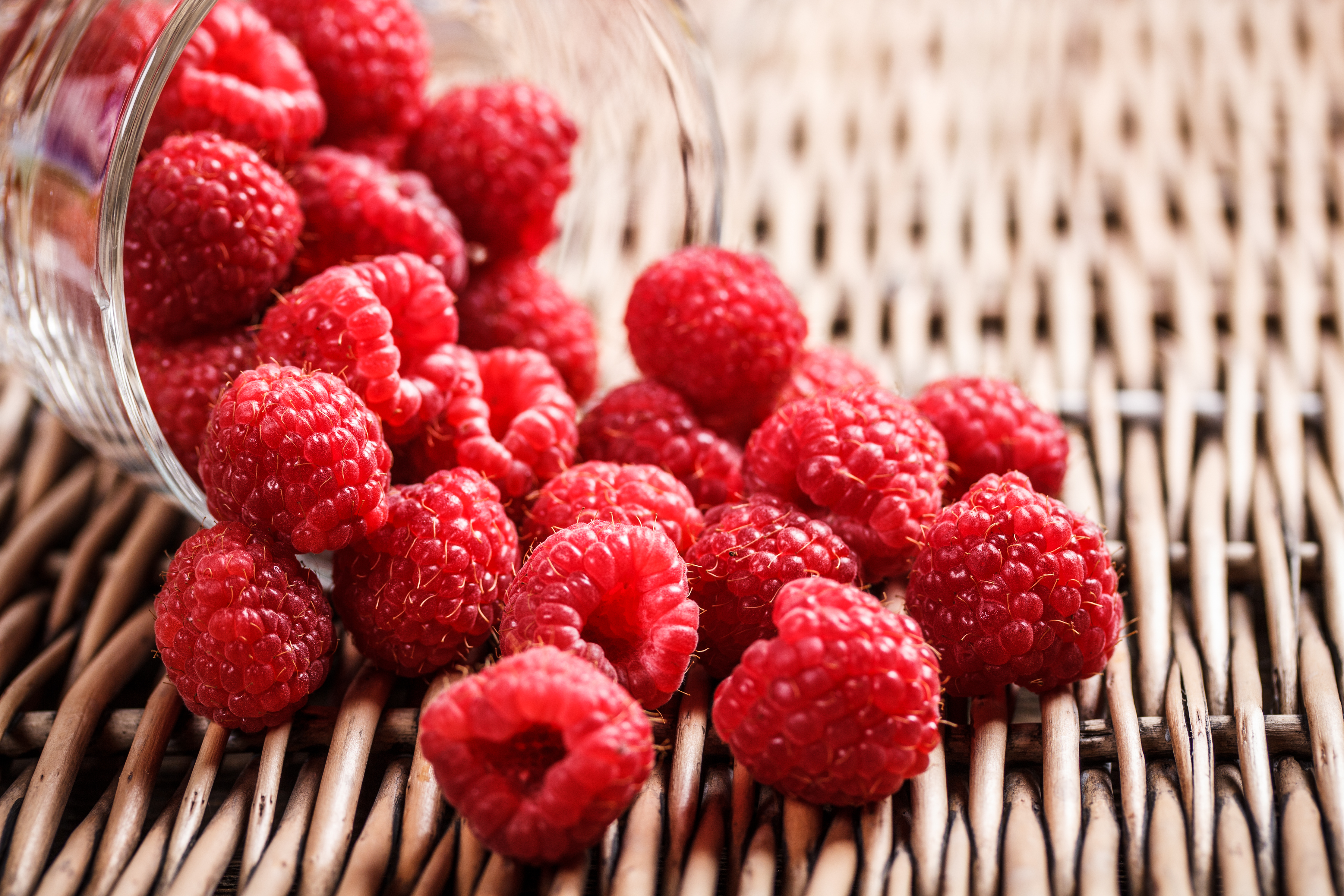
Berries, including strawberries, blueberries, raspberries, and blackberries, are packed with antioxidants and vitamin C, both of which are crucial for collagen production and skin protection. The high antioxidant content in berries helps combat oxidative stress, a major contributor to skin aging. Additionally, the phytochemicals present in berries have anti-inflammatory properties that support overall skin health. This section will delve into the specific benefits of different types of berries, their role in promoting collagen synthesis, and delicious ways to enjoy them as part of a balanced diet.
6. Leafy Greens – The Nutrient-Dense Powerhouses
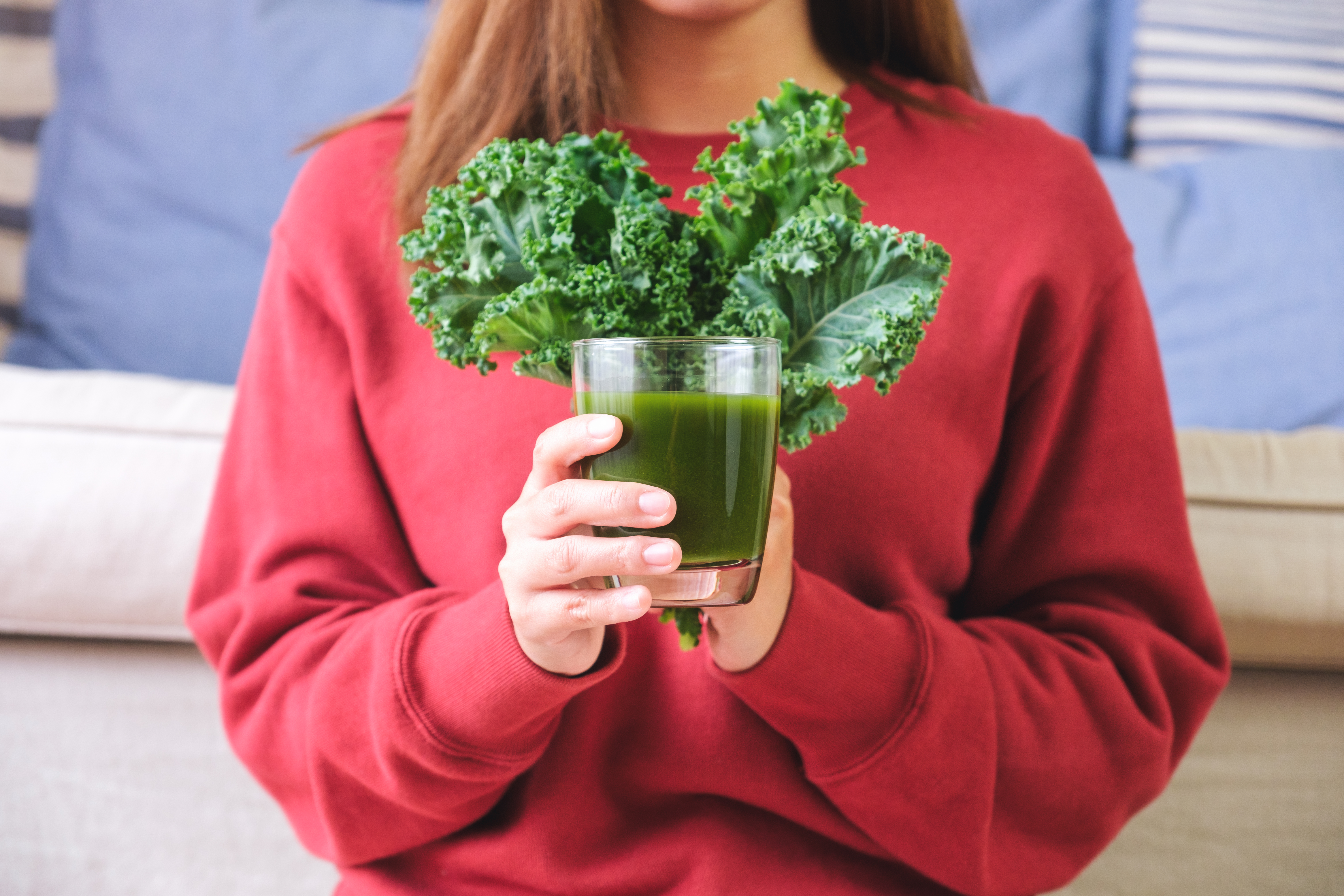
Leafy greens such as spinach, kale, and Swiss chard are nutritional powerhouses that support collagen production and overall skin health. These vegetables are rich in vitamins A, C, and E, as well as antioxidants that protect the skin from damage and promote collagen synthesis. Chlorophyll, the pigment that gives greens their color, has been shown to increase procollagen levels and protect the skin from UV damage. This section will explore the benefits of leafy greens for skin health, their role in collagen production, and creative ways to incorporate them into your meals.
7. Nuts and Seeds – The Omega-Rich Skin Saviors
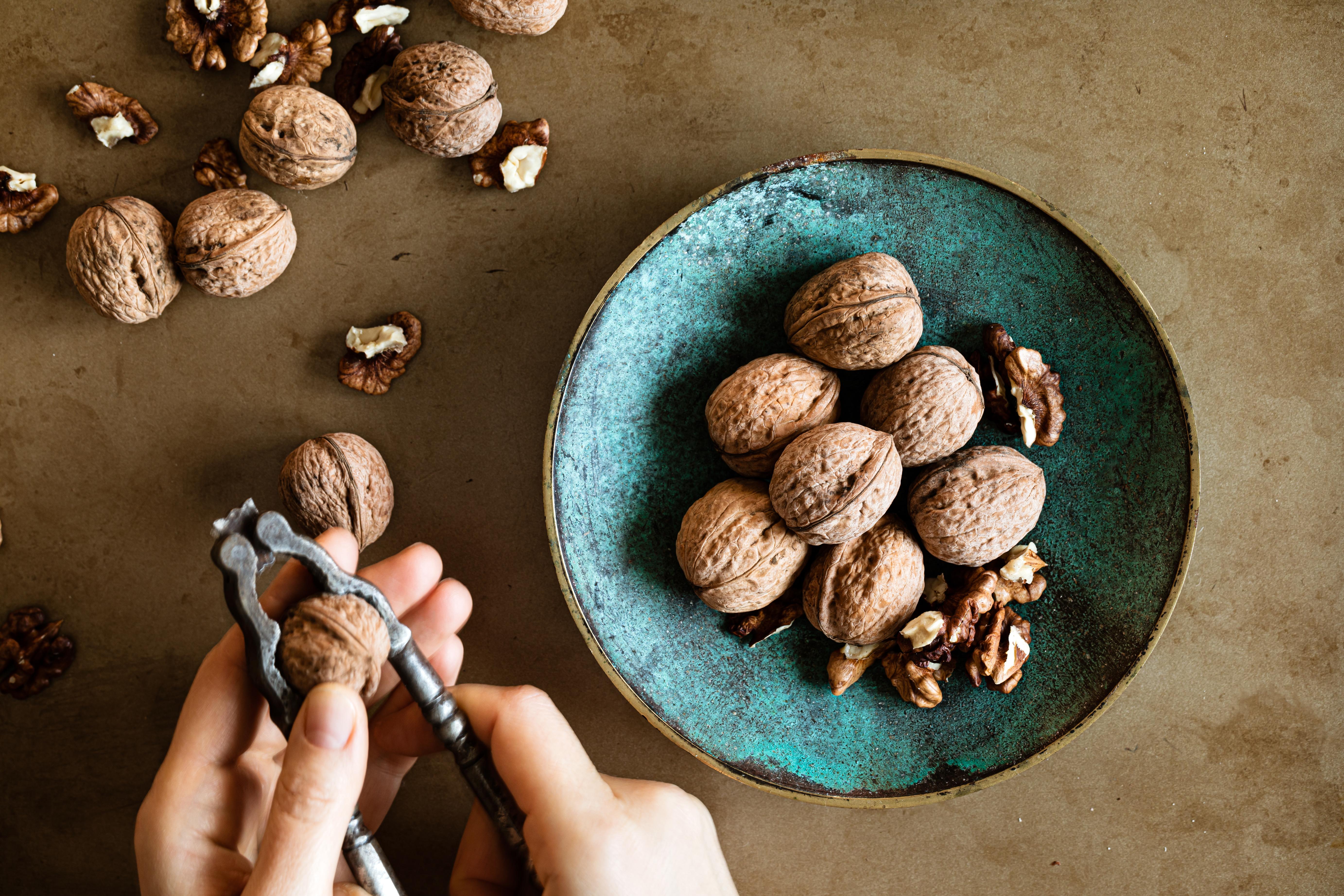
Nuts and seeds, including almonds, walnuts, chia seeds, and flaxseeds, are excellent sources of omega-3 fatty acids, which help maintain skin moisture and elasticity. These foods also provide zinc, a mineral essential for collagen production and skin repair. Additionally, the vitamin E found in nuts and seeds acts as a powerful antioxidant, protecting the skin from oxidative damage. This section will highlight the role of nuts and seeds in supporting collagen production, their benefits for skin health, and how to incorporate them into your diet for maximum impact.
8. Garlic – The Sulfur-Containing Superfood
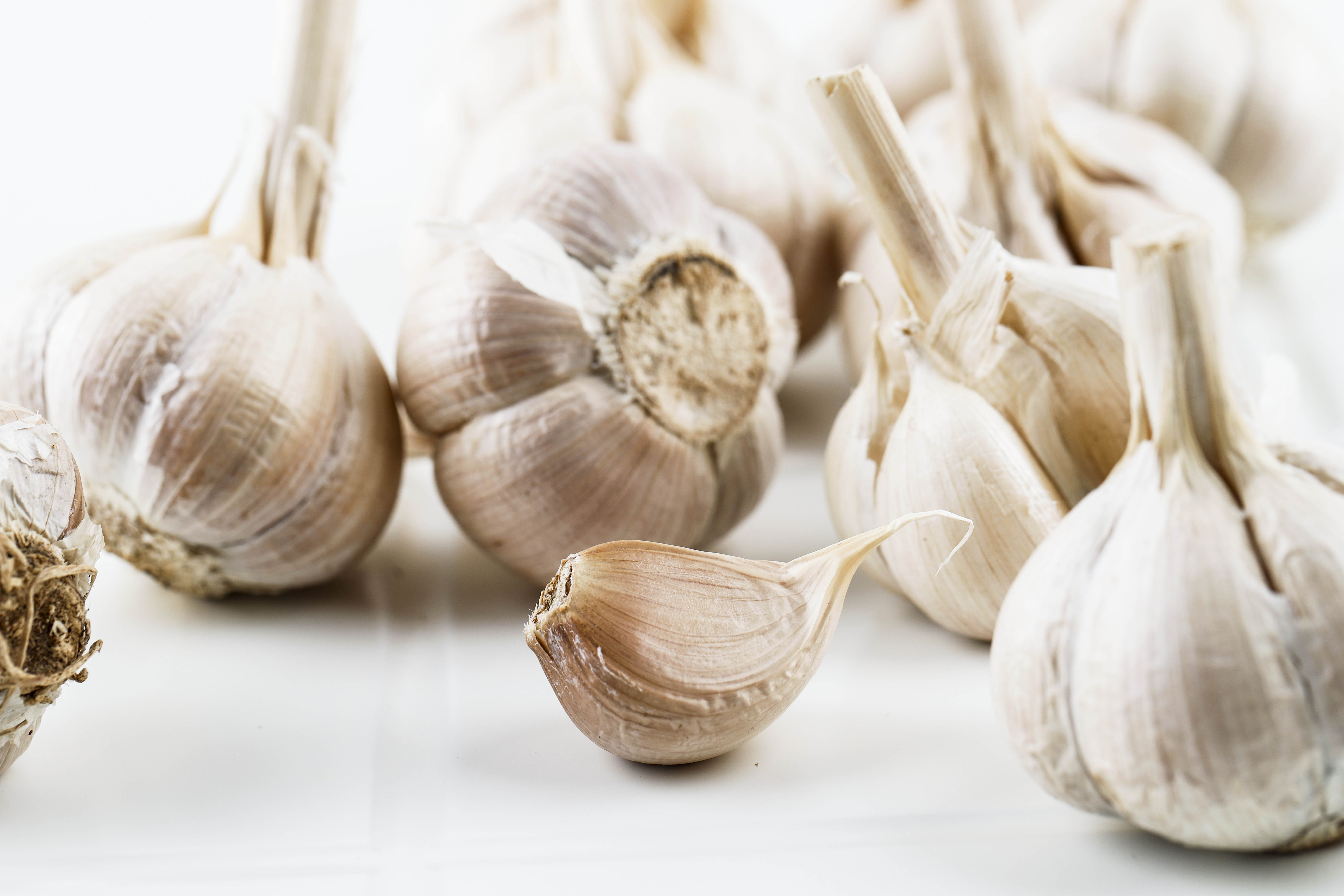
Garlic is not only a flavorful addition to many dishes but also a potent superfood for skin health. It contains sulfur, a trace mineral that is essential for collagen production, as well as taurine and lipoic acid, which help rebuild damaged collagen fibers. The antioxidant properties of garlic further protect the skin from environmental damage. This section will explore the unique benefits of garlic for collagen production, its role in promoting skin health, and tips for incorporating it into your daily meals.
9. Tomatoes – The Lycopene-Rich Protectors
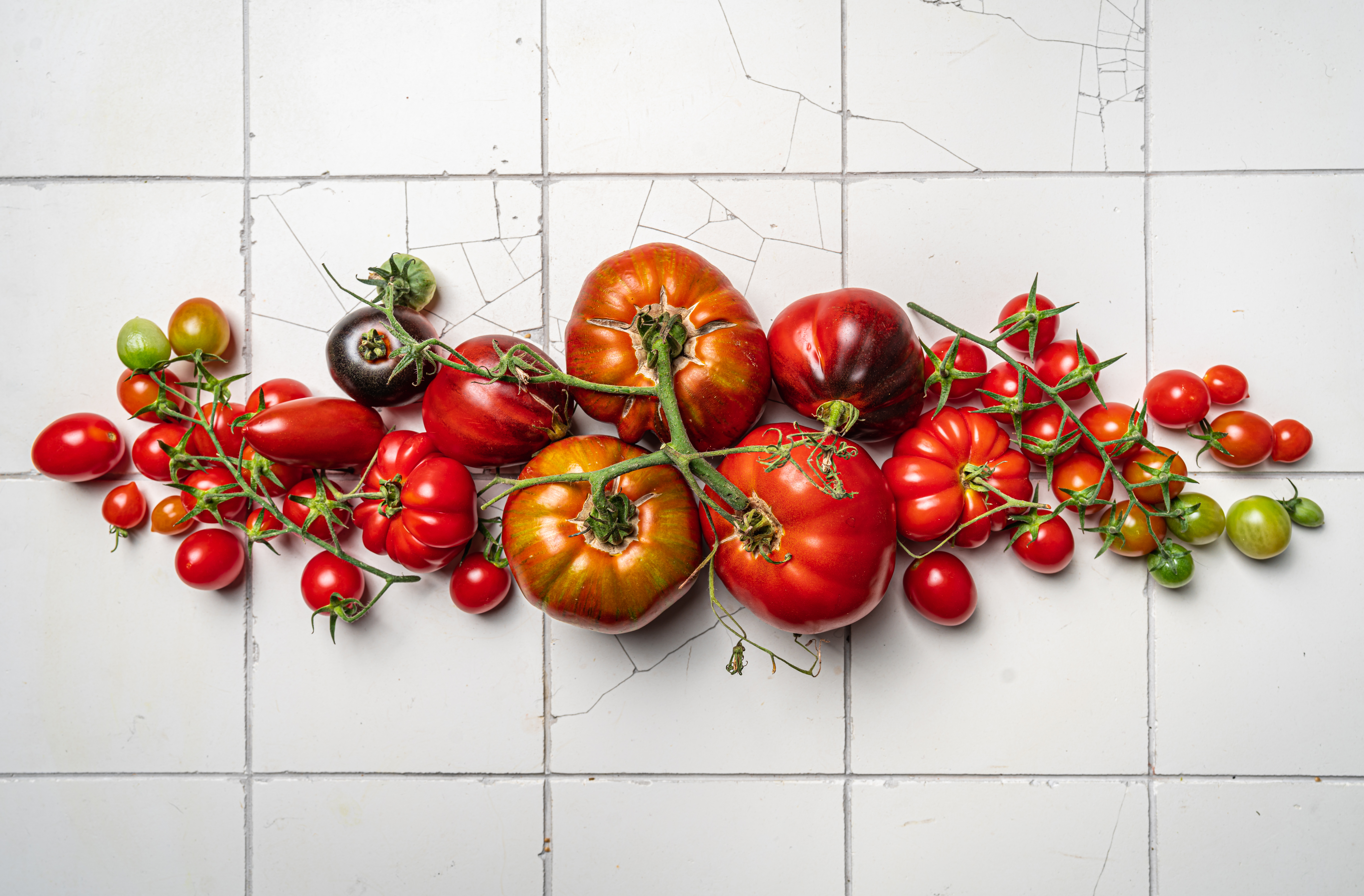
Tomatoes are rich in lycopene, a powerful antioxidant that helps protect the skin from UV damage and supports collagen production. Lycopene has been shown to improve skin texture and reduce the appearance of fine lines and wrinkles. Additionally, tomatoes provide vitamin C, which is crucial for collagen synthesis. This section will examine the skin benefits of tomatoes, the role of lycopene in promoting collagen production, and delicious ways to enjoy tomatoes as part of a balanced diet.
10. Avocado – The Healthy Fat Hero
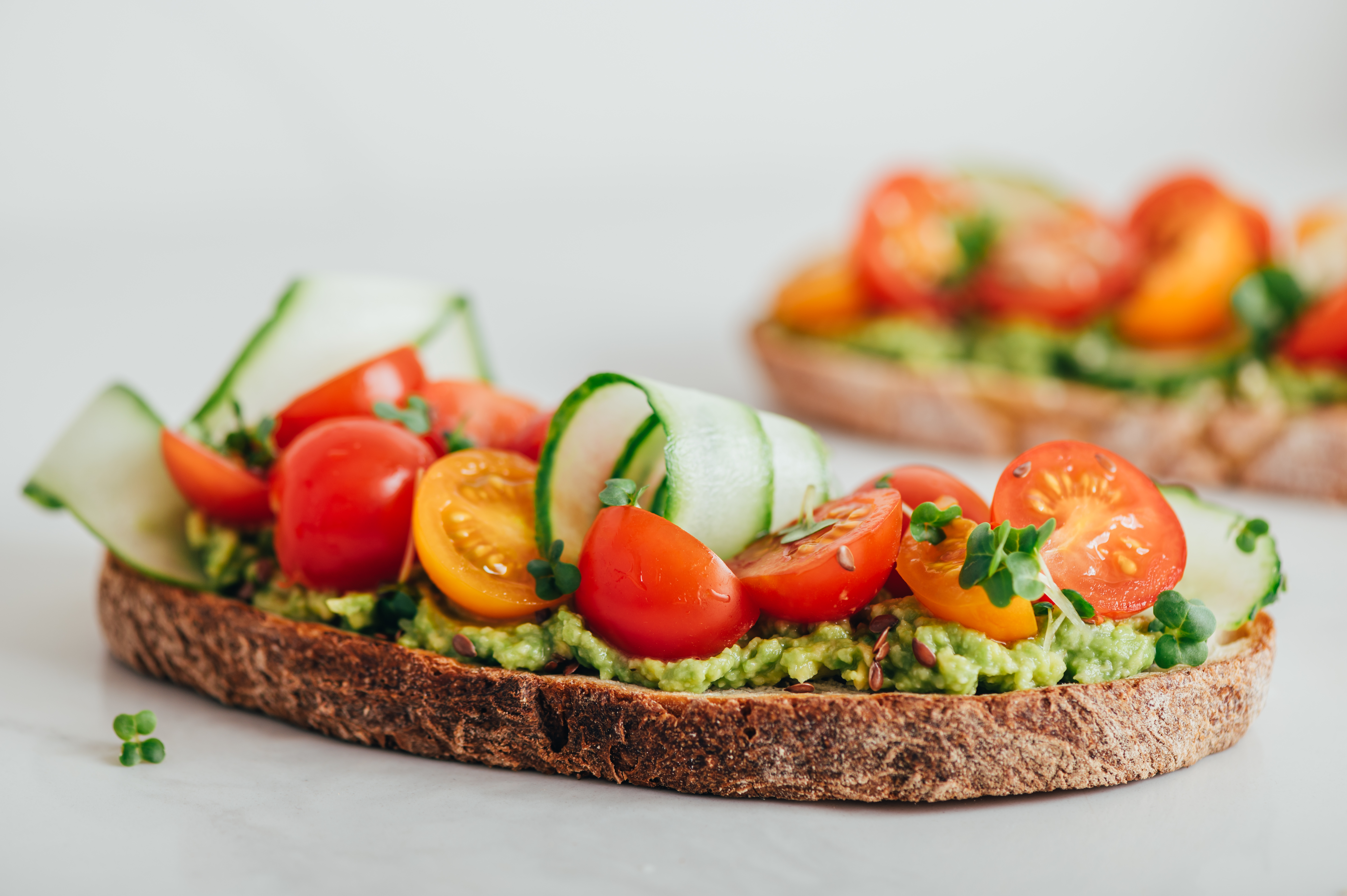
Avocado is a unique fruit that provides healthy monounsaturated fats, which help maintain skin moisture and elasticity. It is also rich in vitamin E and C, both of which are essential for collagen production and skin health. The antioxidants in avocados protect the skin from oxidative damage, promoting a youthful complexion. This section will explore the benefits of avocados for skin health, their role in supporting collagen production, and creative ways to incorporate them into your meals.
11. Soy Products – The Plant-Based Collagen Boosters
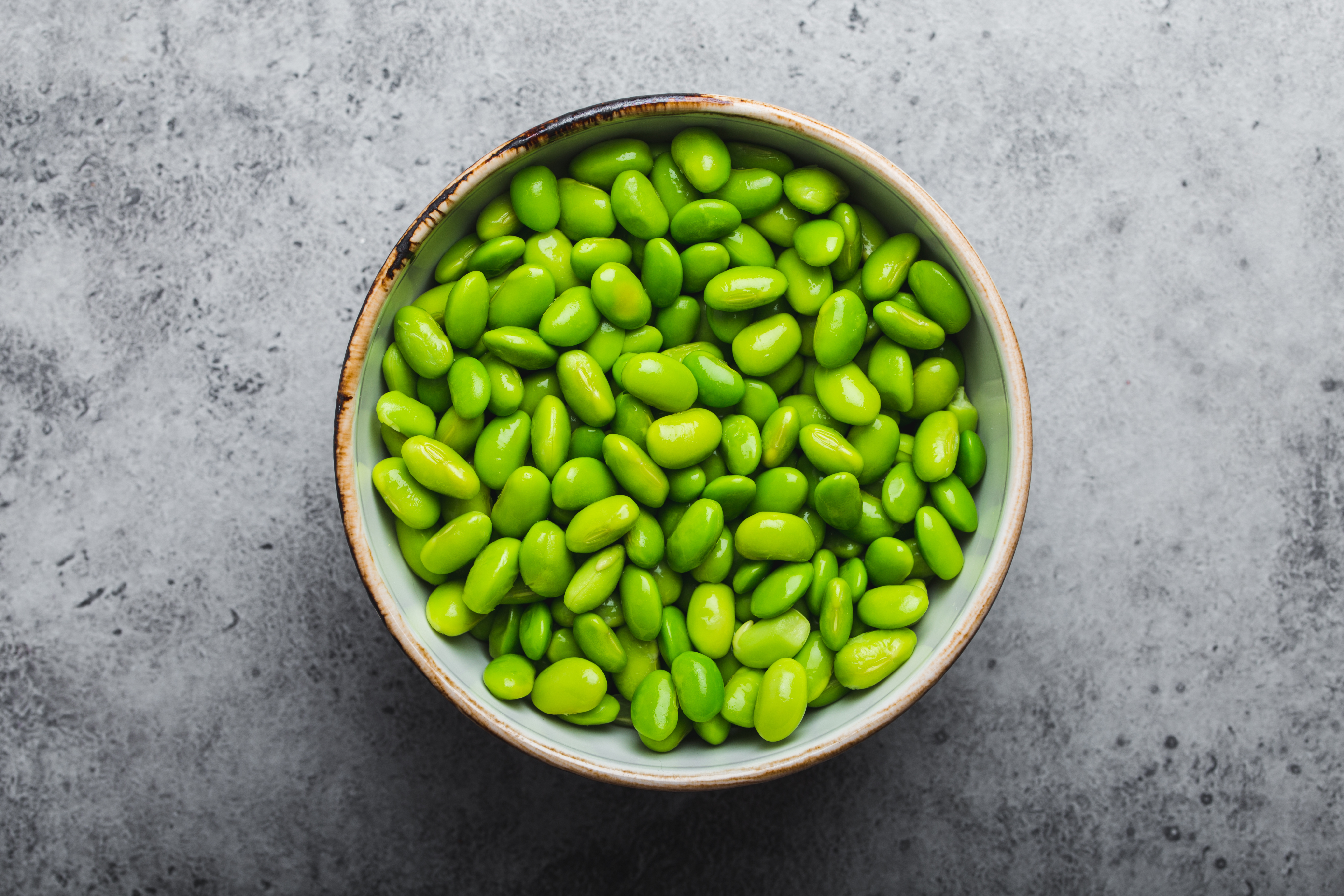
Soy products, including tofu, tempeh, and edamame, are excellent sources of plant-based protein and isoflavones, which have been shown to support collagen production and improve skin elasticity. The antioxidants in soy products help protect the skin from environmental damage and promote a youthful appearance. This section will delve into the benefits of soy products for skin health, their role in collagen production, and tips for incorporating them into a balanced diet.
12. Kiwi – The Underrated Collagen Catalyst
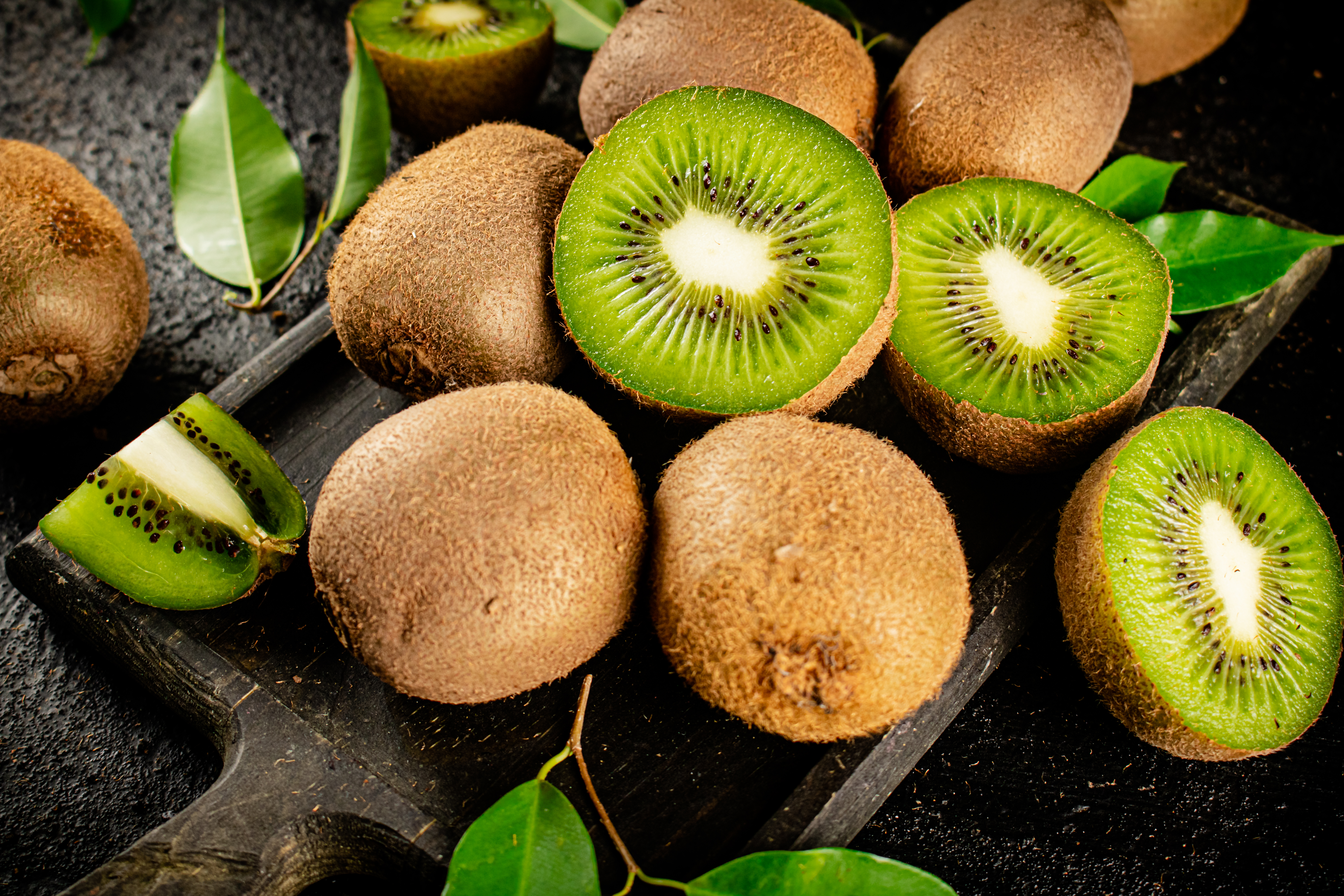
Small but mighty, kiwis are loaded with vitamin C—more than an orange per gram—making them a powerful ally in collagen production. Vitamin C acts as a cofactor in the formation of collagen, helping stabilize its structure and protect it from degradation. Kiwis also contain vitamin E and antioxidants that combat free radicals and reduce skin inflammation, leading to smoother, more radiant skin. Their high fiber content supports gut health, which in turn improves nutrient absorption and overall skin clarity. Add sliced kiwi to yogurt, smoothies, or eat it on its own for a tart, skin-loving snack.
13. Pumpkin – Fall’s Secret Skin Weapon
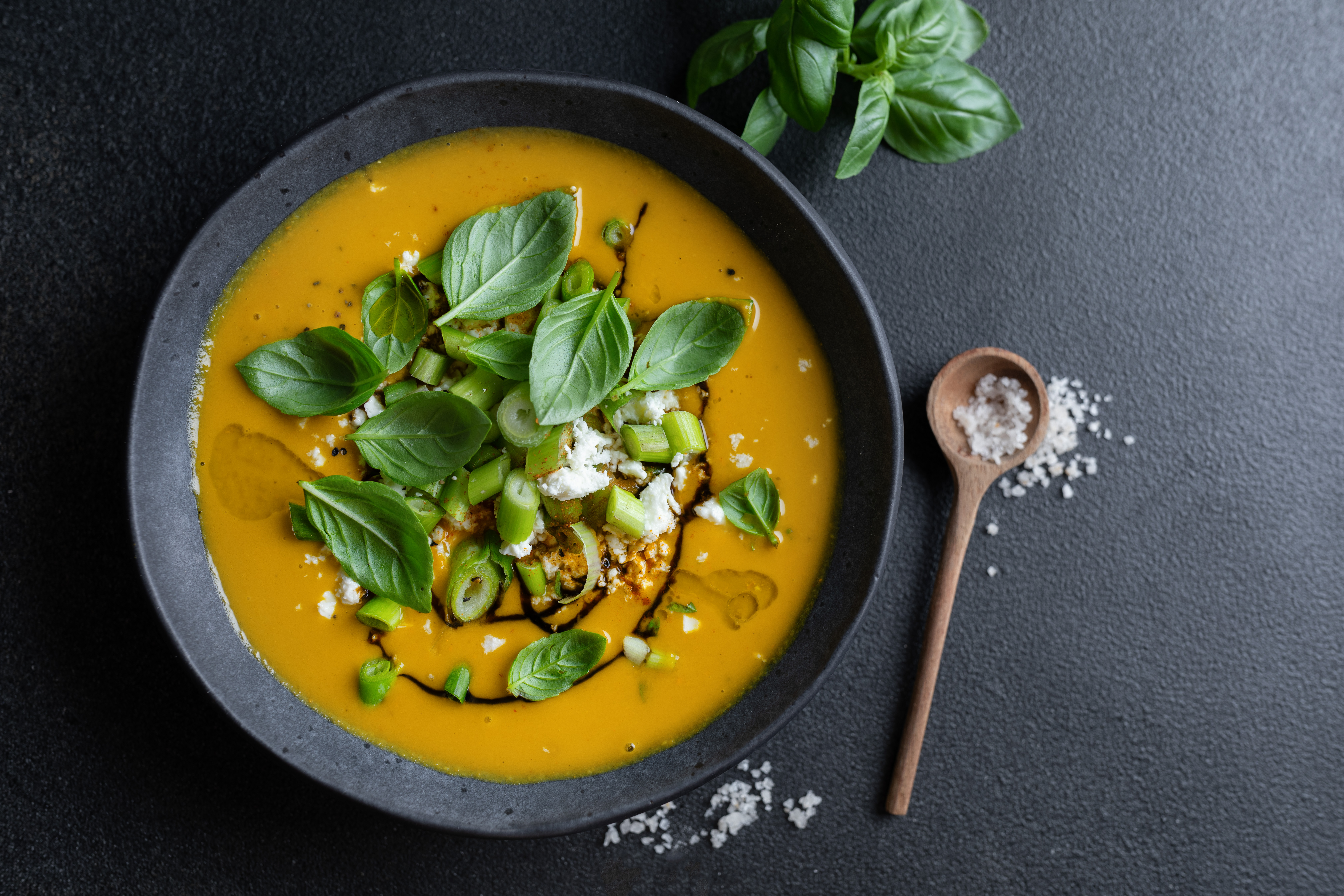
Pumpkin is more than a seasonal latte flavor—it’s a skin-nourishing powerhouse. Rich in beta-carotene (a precursor to vitamin A), pumpkin supports skin cell renewal and collagen integrity. It’s also packed with vitamin C and zinc, both crucial for collagen synthesis and skin repair. The antioxidants in pumpkin help reduce signs of aging by neutralizing free radicals. Whether roasted, pureed, or added to soups and stews, pumpkin delivers a collagen-friendly boost with every bite. Bonus: pumpkin seeds offer zinc and omega-3s, making the whole squash useful from skin to seed.
14. Cashews – The Copper Connection
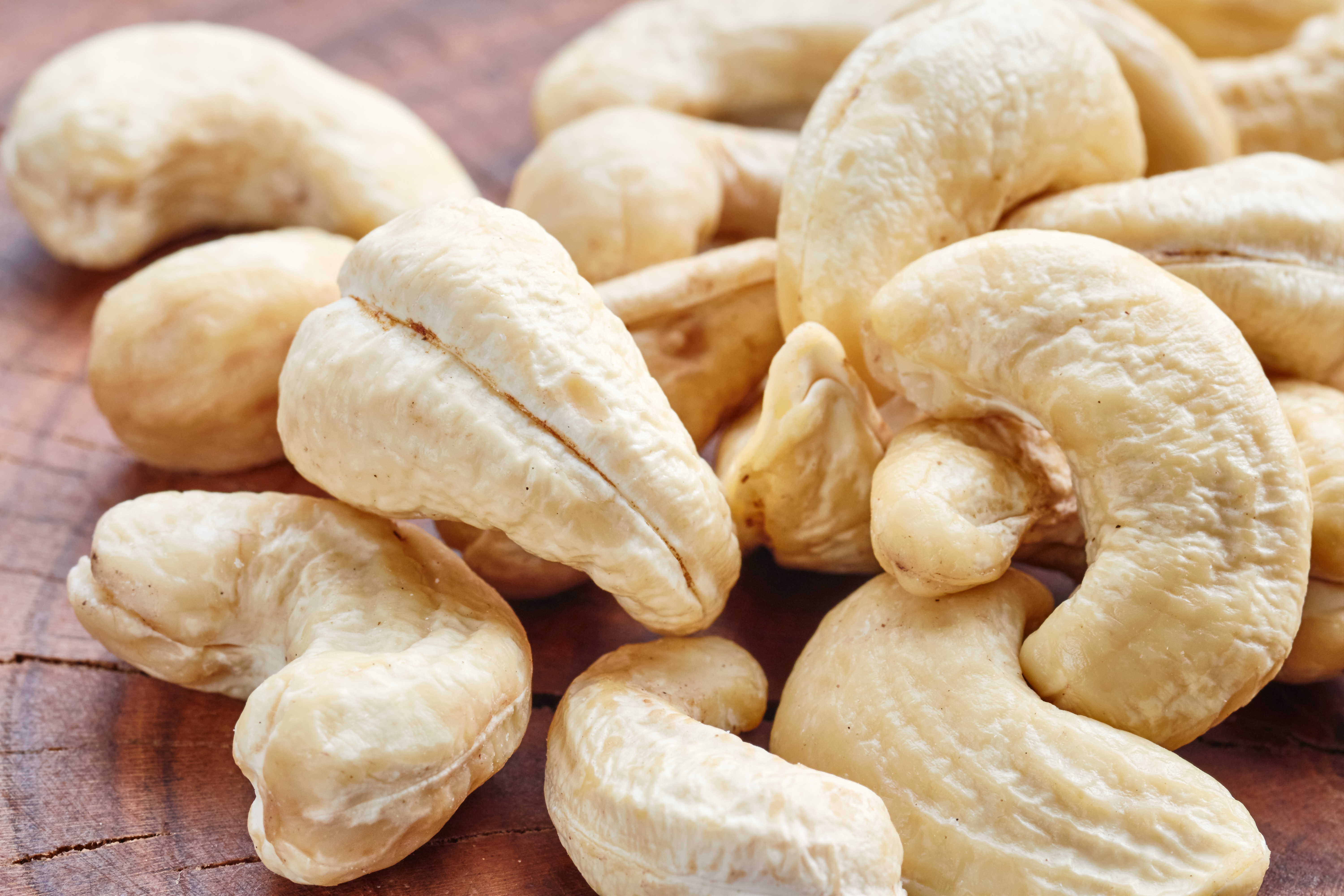
Cashews are a buttery, satisfying snack—and a secret supporter of collagen production. They’re rich in copper, a mineral that plays a critical role in linking collagen and elastin, the proteins responsible for firm, elastic skin. Cashews also provide zinc and healthy fats, which help reduce inflammation and improve skin hydration. Including cashews in your diet—whether tossed into stir-fries, blended into creamy sauces, or eaten straight from the handful—offers a skin-smoothing trifecta of nutrients. Just keep portions moderate to avoid calorie overload while reaping the collagen-friendly benefits.
15. Bell Peppers – Crunchy and Collagen-Friendly
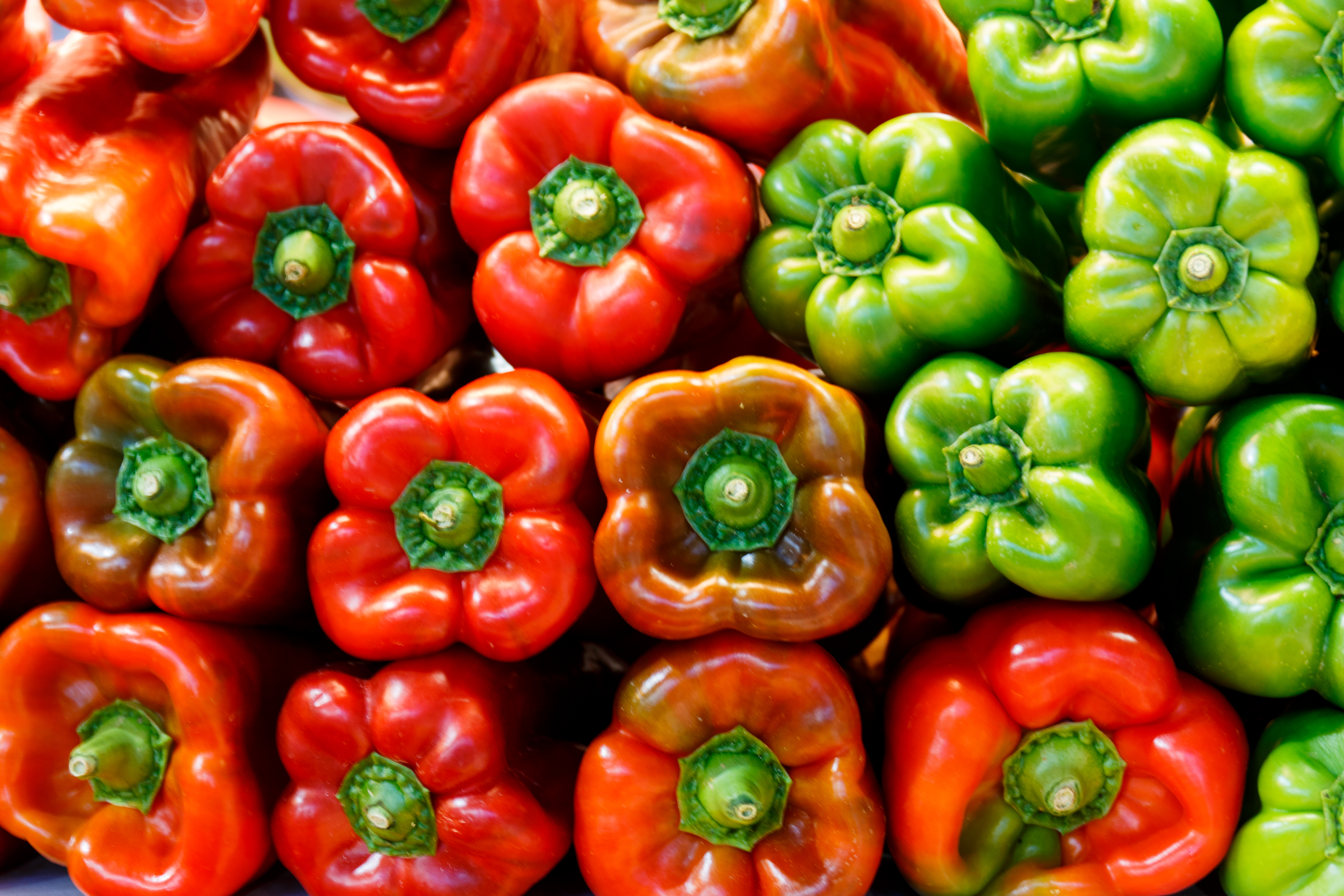
Colorful bell peppers, especially red and yellow varieties, are packed with vitamin C—a cornerstone nutrient for collagen synthesis. Just one cup of chopped red bell pepper delivers over 150% of your daily vitamin C needs. They also contain antioxidants like beta-carotene and capsaicin, which help reduce inflammation and protect skin from sun damage and premature aging. Their crunchy texture makes them perfect for raw snacking, stir-fries, or roasting. Bell peppers don’t just add color to your meals—they help your skin retain its bounce, firmness, and glow.
16. Mushrooms – The Vitamin D Collagen Connector
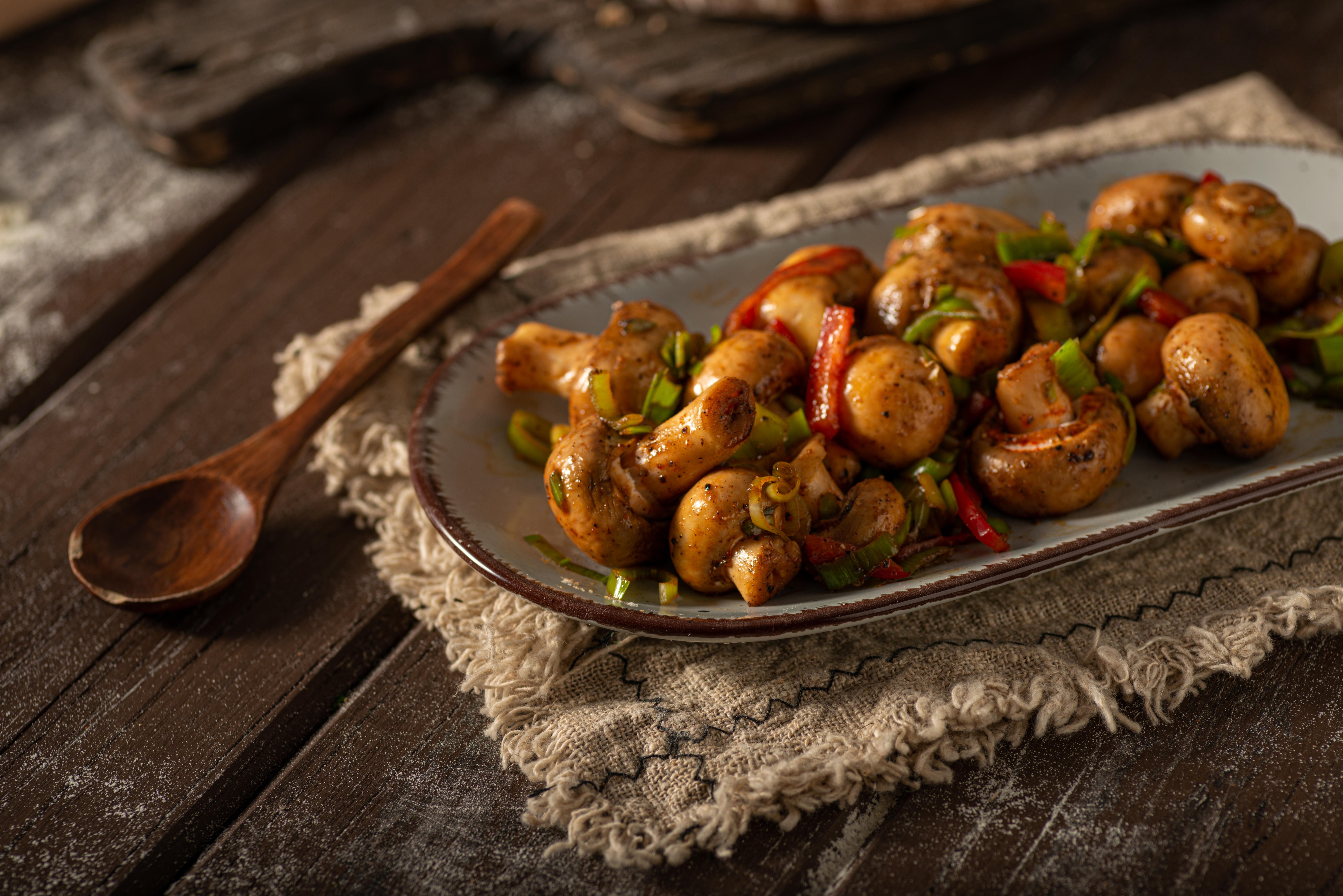
Mushrooms, especially varieties exposed to sunlight like maitake and shiitake, are among the few plant-based sources of vitamin D. This vitamin plays a supporting role in skin cell metabolism and repair—key to keeping collagen intact. Certain mushrooms also offer antioxidants like ergothioneine, which helps prevent collagen breakdown caused by oxidative stress. Including mushrooms in your diet—whether grilled, sautéed, or blended into soups—can support both collagen protection and regeneration, especially when paired with other collagen-boosting foods rich in protein and vitamin C.
17. Seaweed – The Ocean’s Skin Supercharger
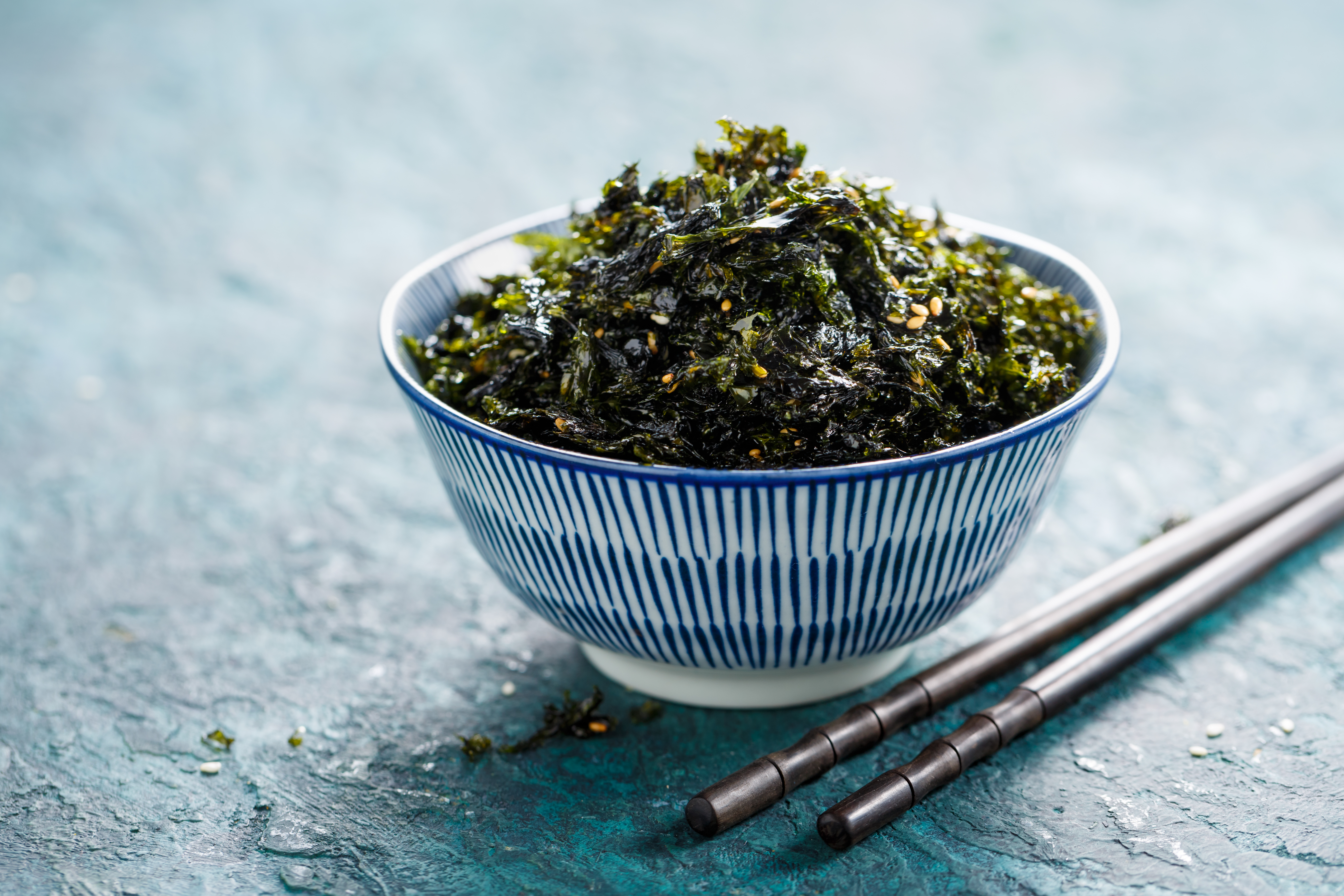
Seaweed isn’t just a sushi sidekick—it’s a skin-loving powerhouse loaded with antioxidants, omega-3s, and nutrients like iodine and tyrosine that support thyroid function, which in turn impacts collagen production and skin tone. Rich in alginate and fucoidan, seaweed helps reduce skin inflammation and maintain hydration, both essential for collagen integrity. Some varieties even promote elastin repair. Whether you snack on nori, add wakame to soups, or use dulse in salads, seaweed brings marine magic to your anti-aging routine. It’s a collagen-supporting ingredient often overlooked—but for firmer, more luminous skin, seaweed deserves a spot on your plate.
18. Papaya – Tropical Fruit with Skin-Repairing Power
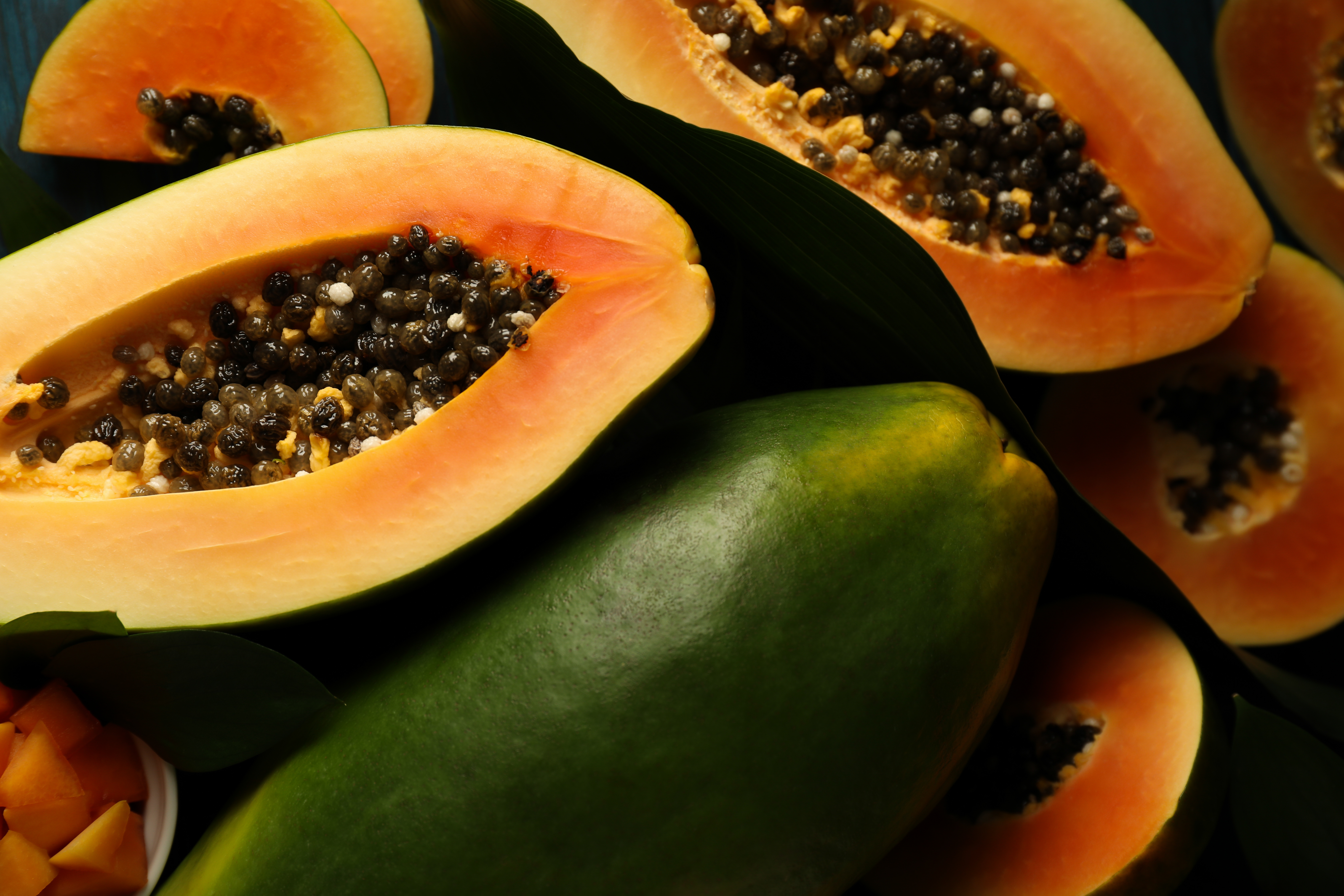
Papaya is a tropical treasure trove of collagen-supporting nutrients. It’s rich in vitamin C (essential for collagen synthesis), beta-carotene, and powerful enzymes like papain that gently exfoliate the skin from the inside out. These compounds help reduce inflammation and protect collagen fibers from degradation. Papaya also boosts skin elasticity and smoothness by promoting cellular turnover. It’s hydrating, fiber-rich, and gut-friendly—key for optimal nutrient absorption. Whether blended into smoothies, tossed into salads, or eaten fresh, this golden fruit helps you glow from within. For anyone chasing youthful, supple skin, papaya isn’t just dessert—it’s skincare in fruit form.
19. Sunflower Seeds – Tiny Seeds, Big Skin Impact
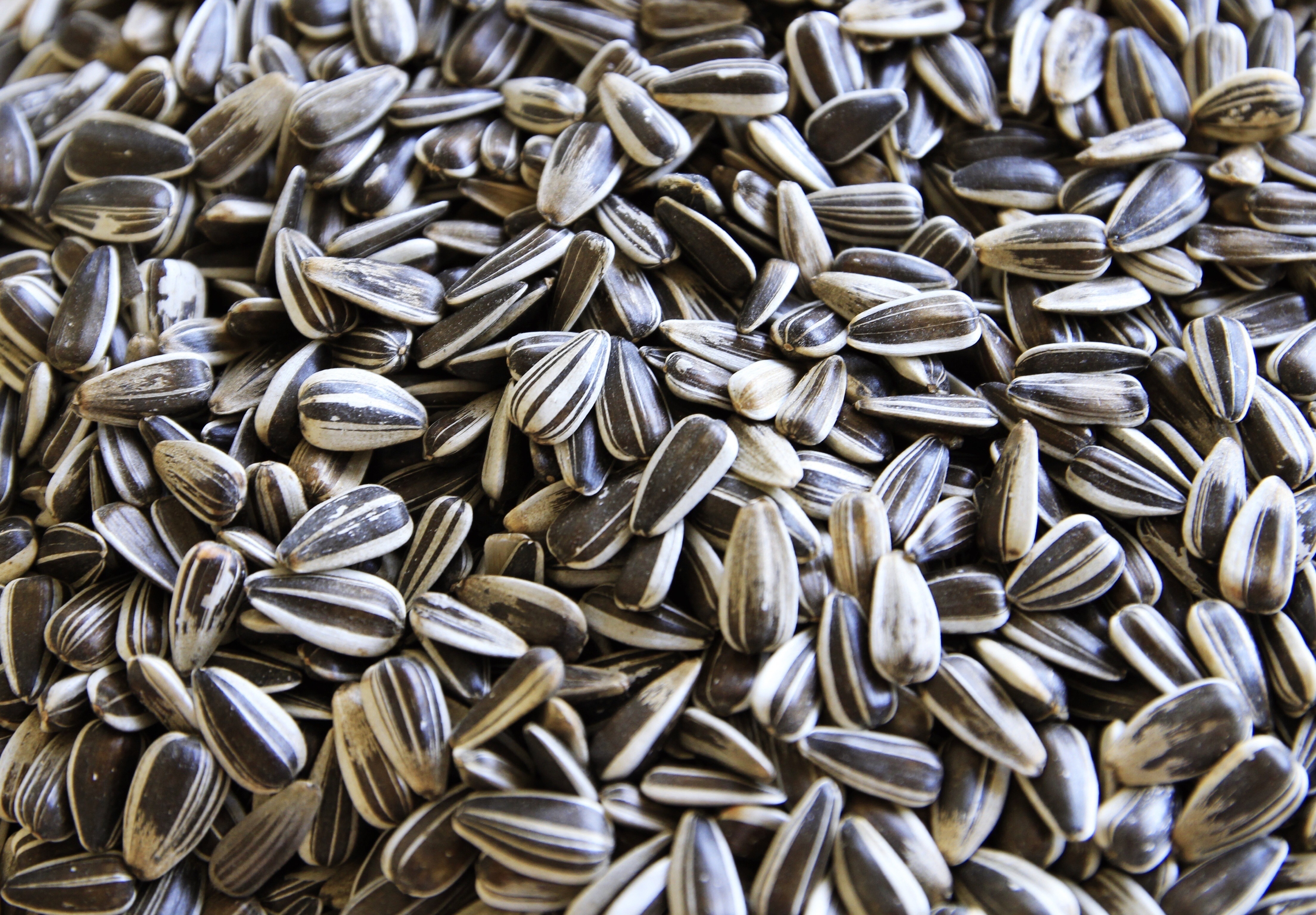
Don’t underestimate the humble sunflower seed. These crunchy gems are packed with vitamin E—one of the most potent antioxidants for skin health. Vitamin E helps protect collagen from UV and free radical damage while supporting skin hydration and elasticity. Sunflower seeds also contain selenium, zinc, and healthy fats, all of which help stabilize the collagen matrix and reduce skin inflammation. Sprinkle them over oatmeal, blend them into seed butters, or mix into granola for a subtle, skin-loving crunch. Bonus: their anti-inflammatory profile makes them great for those with acne-prone or sensitive skin.
20. Chicken Skin – The Overlooked Collagen Goldmine
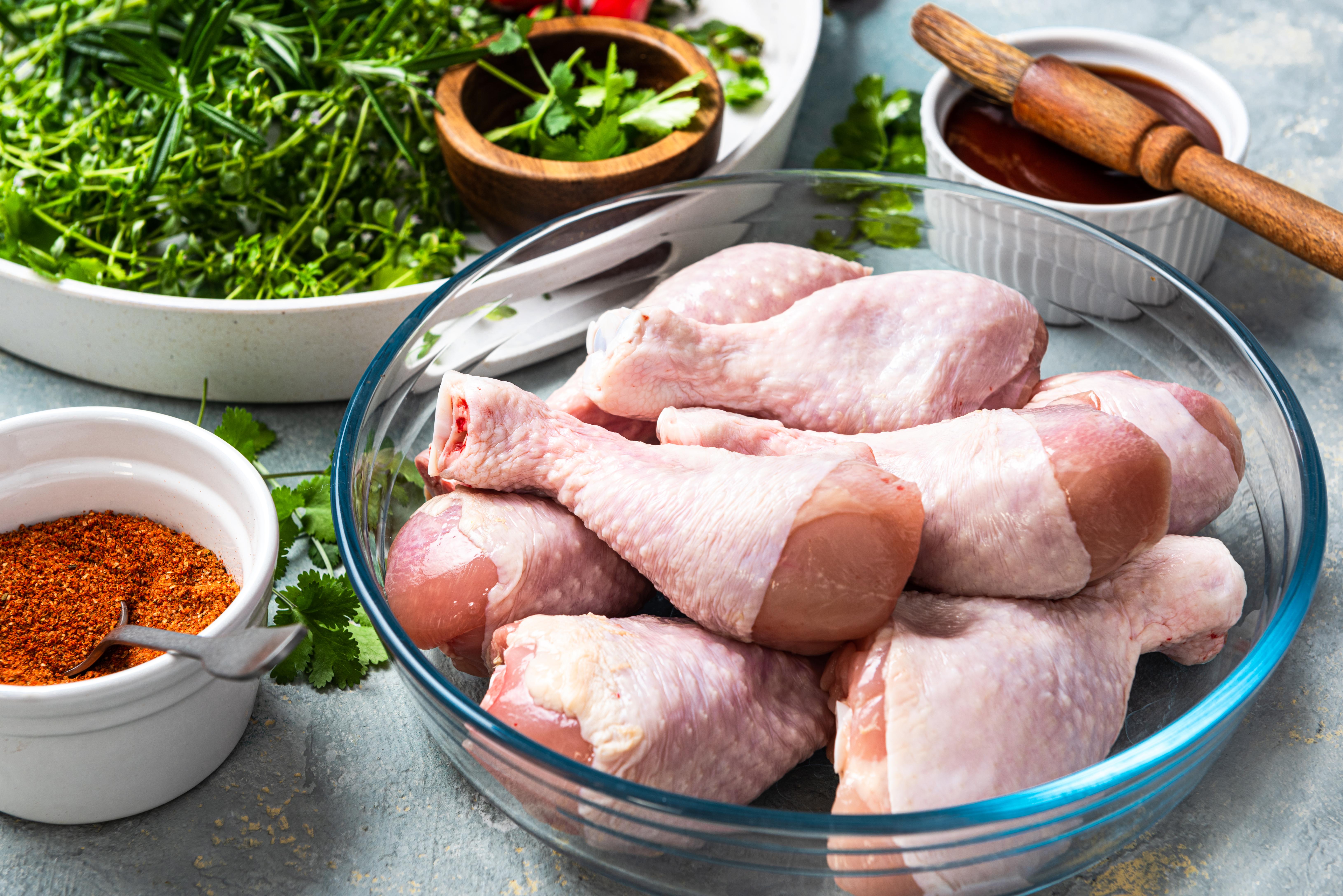
Chicken skin, often discarded for being “unhealthy,” is actually one of the richest natural sources of dietary collagen—especially Type I and III, which are crucial for skin strength and elasticity. While moderation matters, consuming chicken skin (especially from organic, pasture-raised birds) can support smoother, firmer skin from within. It also provides glycine and proline—two key amino acids that directly support collagen synthesis. Roasted until crisp or simmered in homemade broth, chicken skin transforms from overlooked byproduct to collagen-rich superfood. If you’re skipping it purely for calories, you might be tossing out a secret weapon for youthful skin.
21. Lentils – The Plant-Based Protein Builder
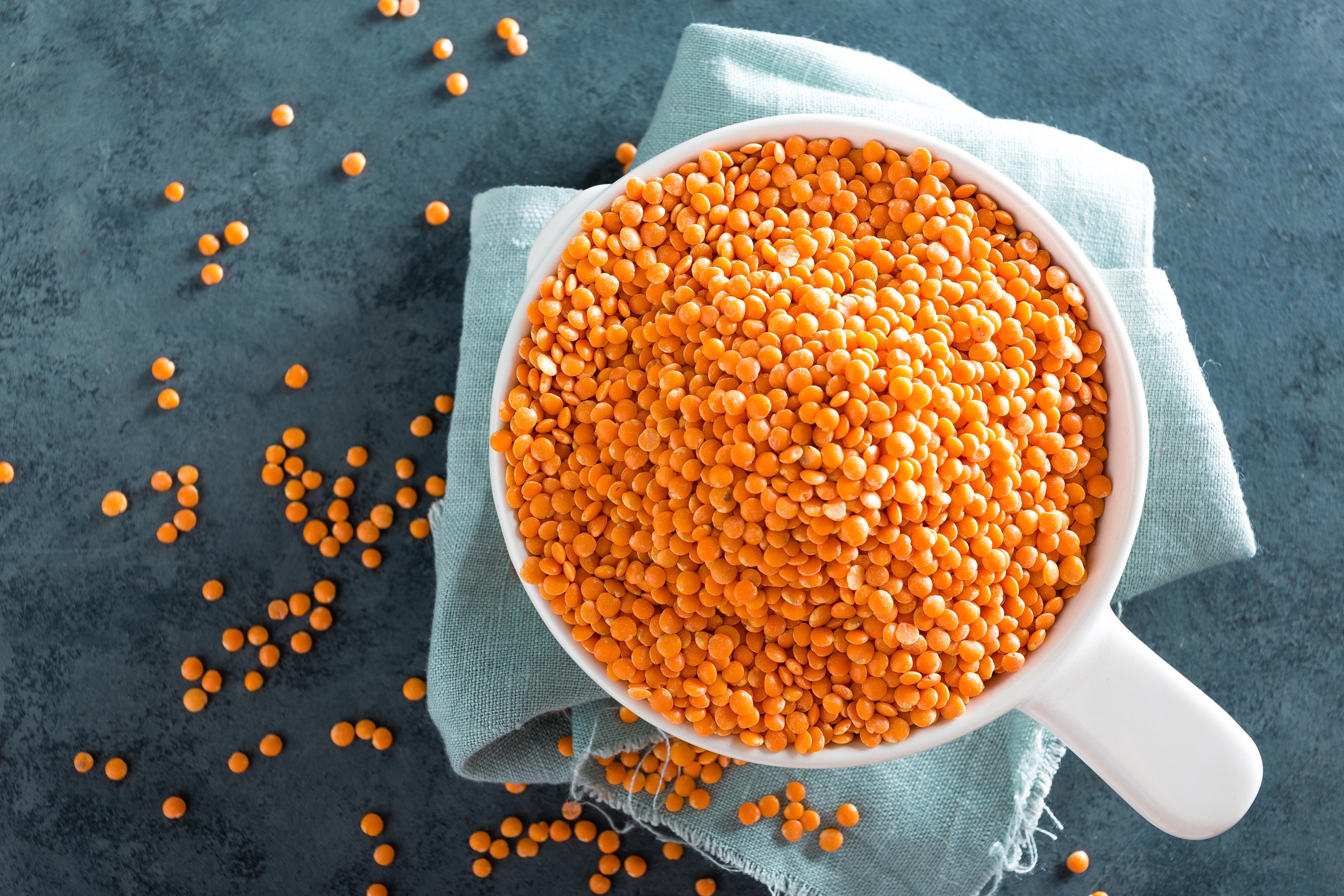
Lentils are a fantastic plant-based source of protein—an essential building block for collagen. They’re also rich in lysine, an amino acid required for collagen cross-linking, which gives skin its strength and structure. Lentils offer a host of micronutrients like zinc, copper, and iron that further support skin repair and collagen synthesis. Their high fiber content also promotes gut health, indirectly improving nutrient absorption and skin clarity. Whether in soups, stews, salads, or veggie patties, lentils are versatile, affordable, and deeply nourishing. They may not contain collagen directly, but they equip your body to build and protect it with efficiency.
22. Red Grapes (Resveratrol and Pterostilbene) — The Anti-Glycation Shield
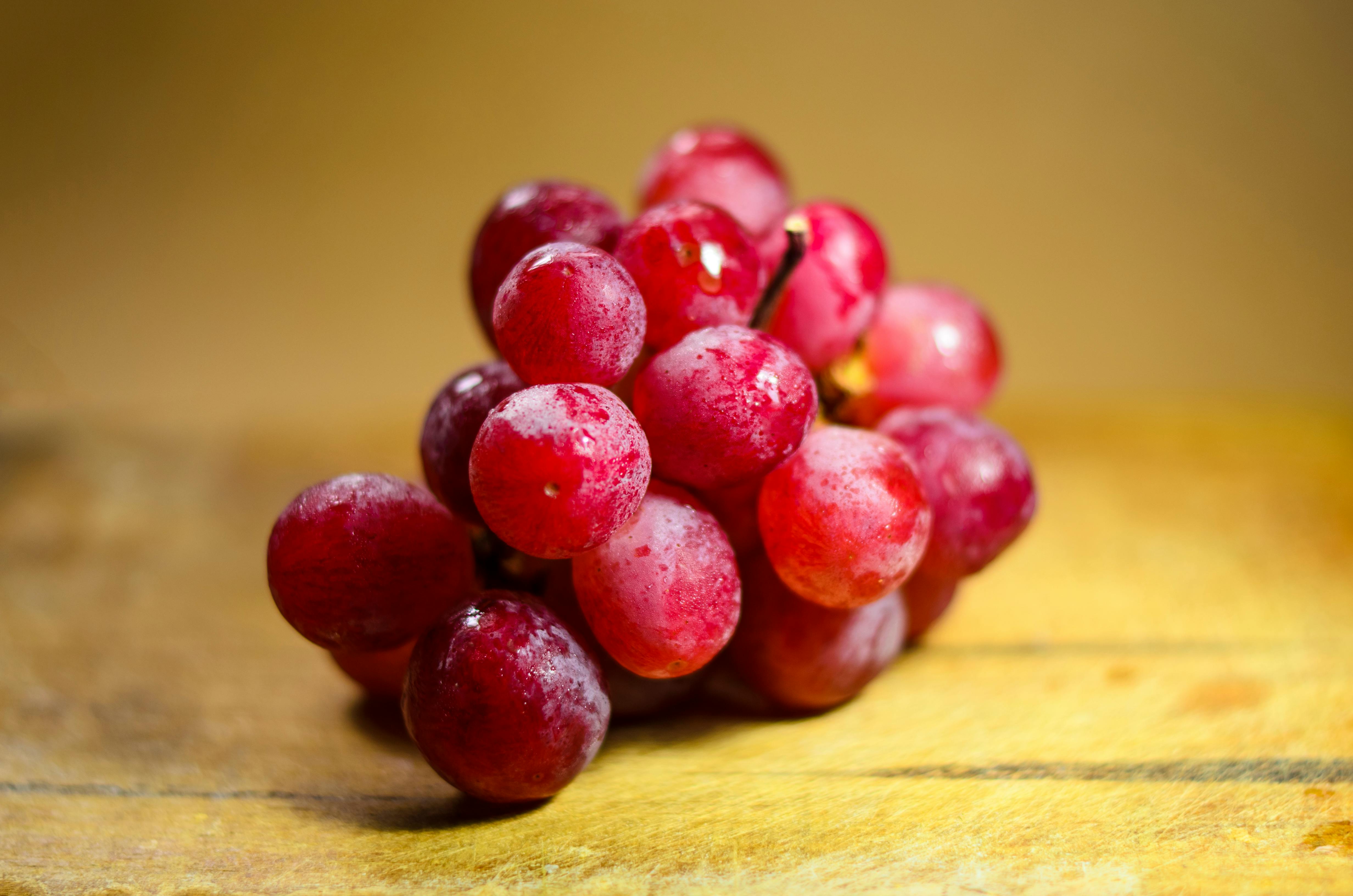
Red grapes, especially their skins, contain potent polyphenols like Resveratrol and Pterostilbene. These compounds don't build collagen but actively preserve it by fighting glycation, a process where sugar molecules link to proteins, stiffening collagen fibers and causing wrinkles. Resveratrol helps maintain youthful, flexible skin by keeping the collagen matrix supple. Eating whole red or purple grapes (skin and all) or using 100% red grape juice provides a delicious, daily dose of this internal shield against sugar-induced aging, protecting the elasticity you already have.
23. Alfalfa Sprouts — The Lysine and Silica Supplier
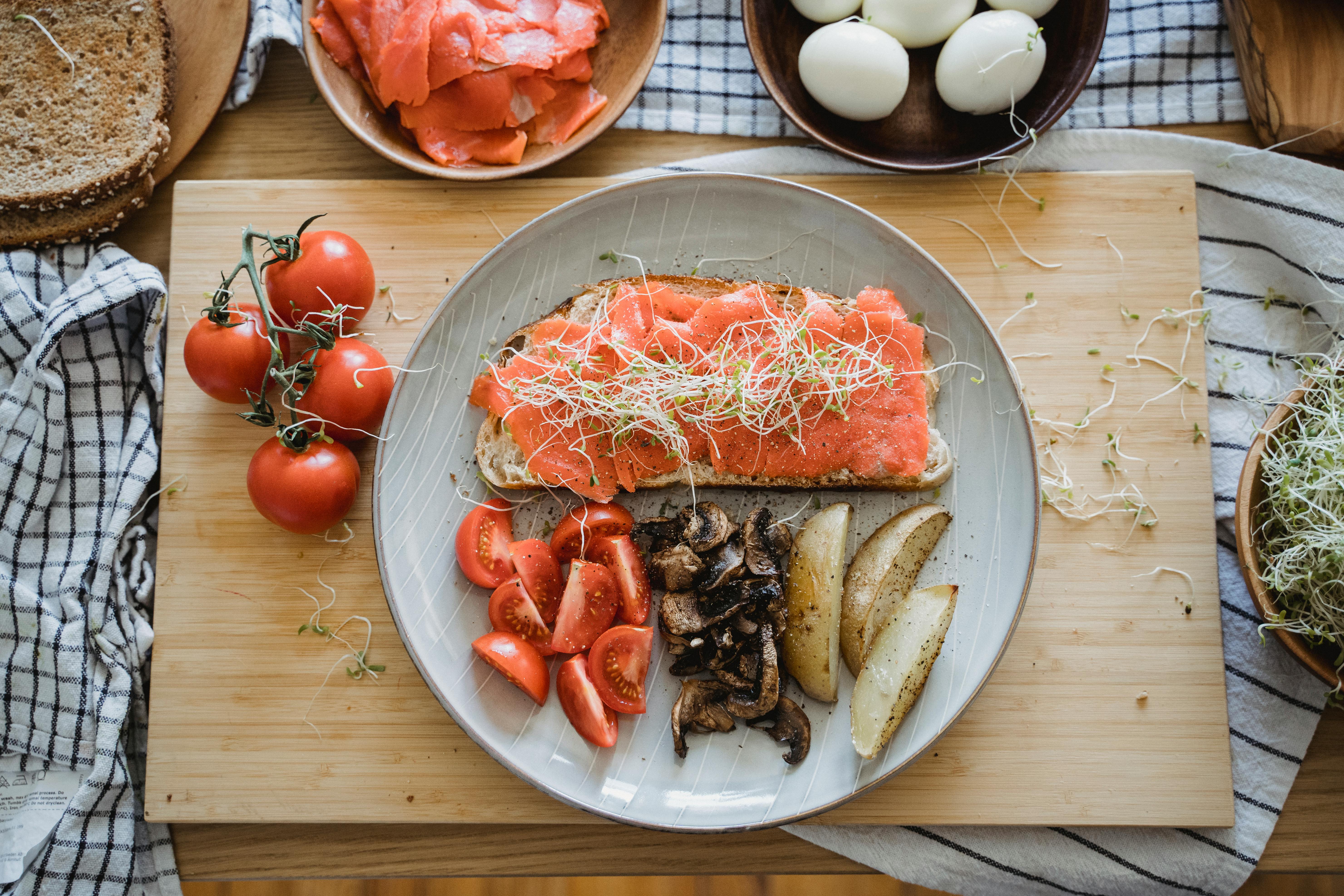
Alfalfa sprouts are a subtle but powerful addition to your diet for structural support. They are an excellent source of Lysine, an amino acid essential for collagen cross-linking, which gives the skin its strength and integrity. Uniquely, alfalfa sprouts provide trace amounts of Silica (Silicon), a mineral required for the body to form the initial collagen scaffolding upon which other nutrients are laid. Adding these fresh, crunchy sprouts to sandwiches, salads, or wraps provides concentrated, easy-to-digest building blocks that support the entire collagen production and maintenance process from the ground up.
24. Flaxseeds (Ground) — The Lignan and Omega-3 Barrier
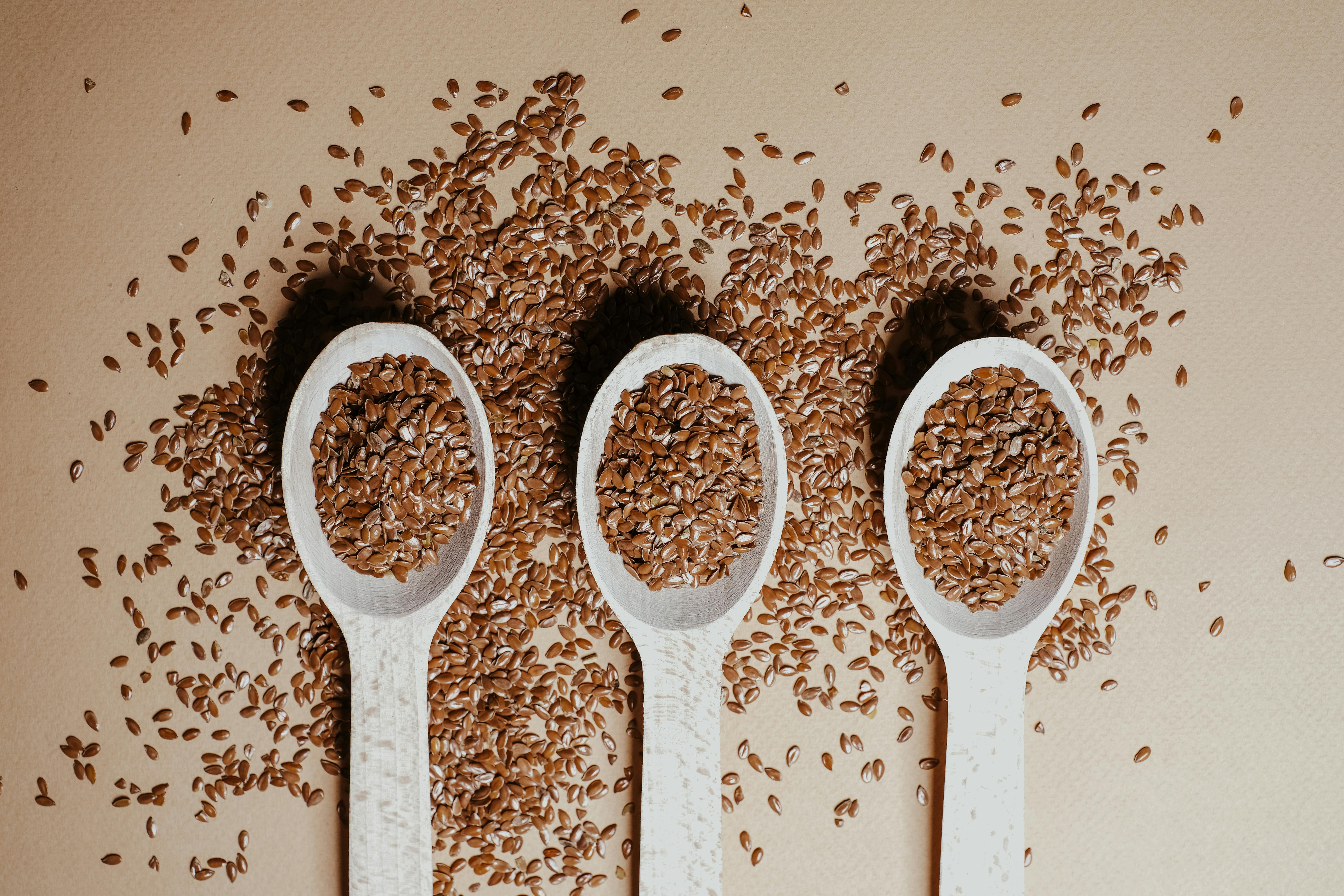
Ground flaxseeds offer a superior, multi-action benefit for collagen health. They are one of the richest plant sources of the omega-3 fat Alpha-Linolenic Acid (ALA), which calms the inflammation that breaks down collagen. More uniquely, they contain lignans, powerful plant compounds with mild estrogenic activity. These lignans may help protect against collagen loss, which often accelerates post-menopause due to hormonal shifts. Adding ground flaxseeds to yogurt or oatmeal creates an internal, anti-inflammatory and hormonal-protective barrier against the degradation of your existing collagen stores.
25. Oysters — The Concentrated Copper and Zinc Catalyst
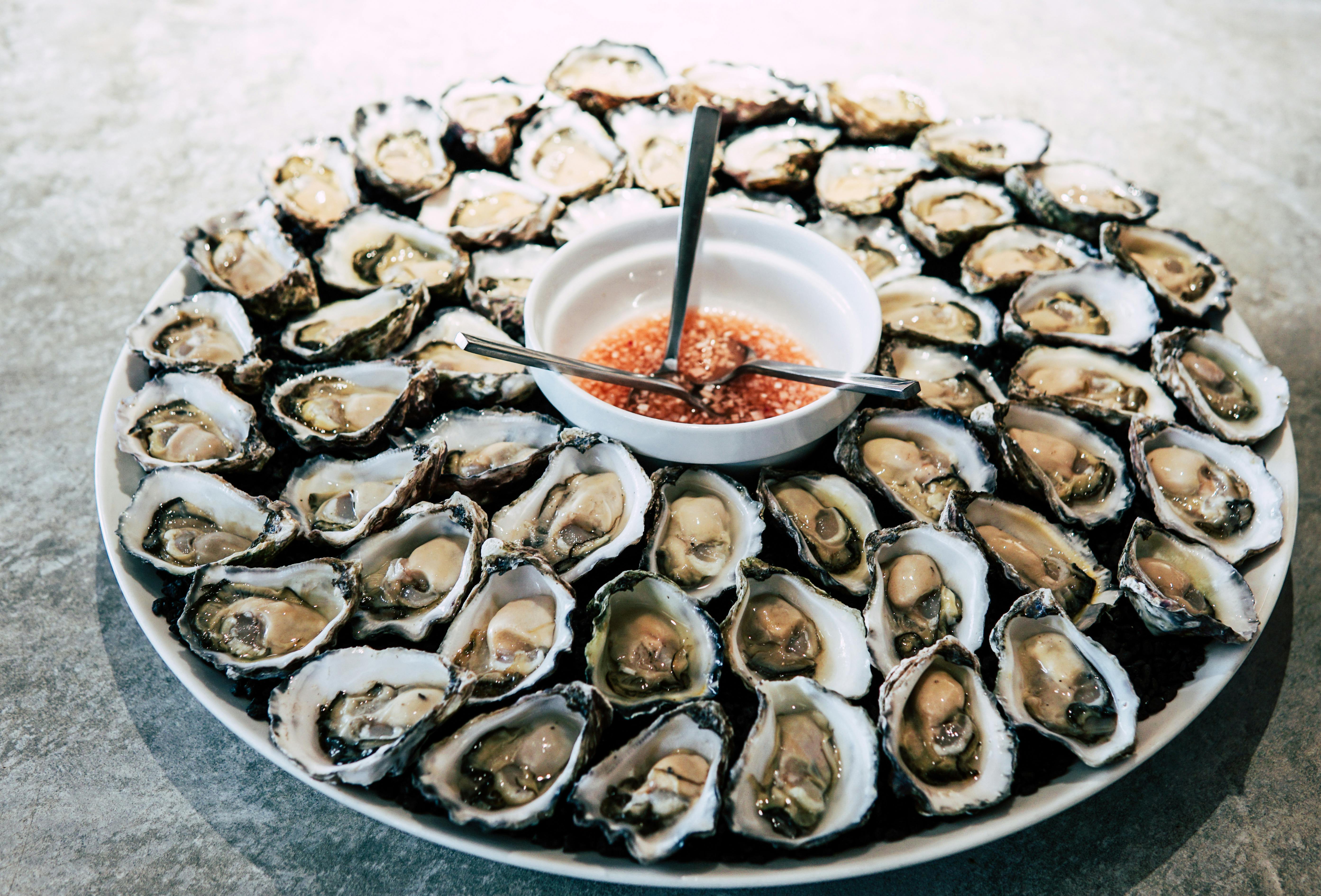
Oysters are a true superfood for skin elasticity, offering a concentrated source of the two most critical trace minerals for collagen. They are loaded with Zinc (essential for the enzyme that synthesizes new collagen) and Copper (necessary for the enzyme that cross-links collagen and elastin, providing firmness). This pairing is rarely found in such high density in a single food. Ensuring adequate intake of this mineral duo, either through oysters or supplements (with doctor guidance), directly supports both the formation of new collagen and the structural integrity of your skin's existing framework.
26. Dried Thyme (Concentrated Manganese)
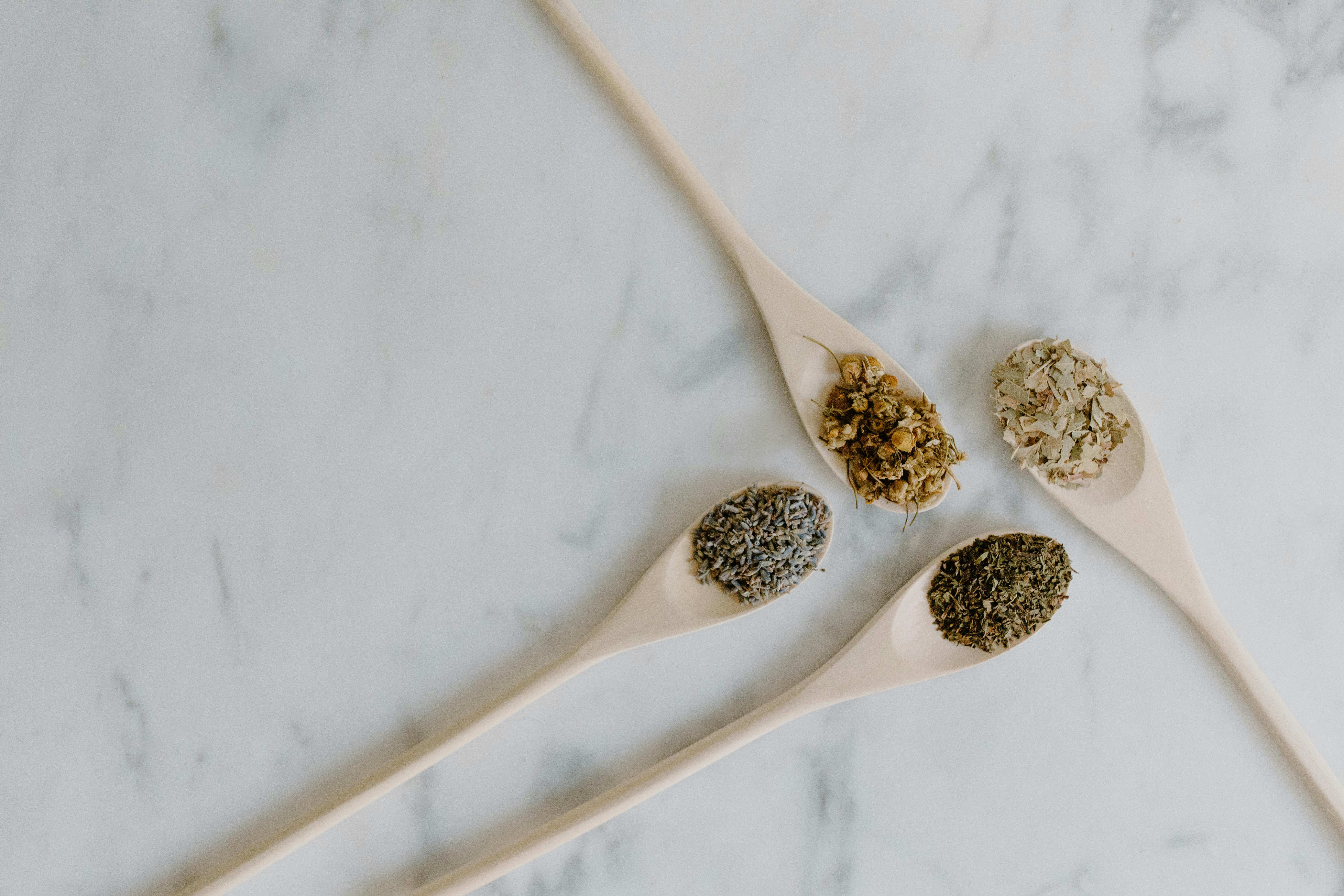
While other herbs are mentioned, Dried Thyme is one of the most concentrated food sources of the trace mineral Manganese. Manganese is a vital cofactor for the enzyme prolidase, which helps break down and recycle existing collagen, ensuring the constant repair and renewal necessary for youthful skin. By providing this necessary co-factor, thyme supports the body's natural housekeeping system. Using this potent, fragrant herb in cooking, rubs, and teas is an effortless way to ensure the underlying skin matrix has the metabolic tools required for continuous, efficient self-renewal.
Glow from Within—One Bite at a Time

Aging isn’t the enemy—neglect is. By choosing foods that actively rebuild, protect, and stimulate your body’s natural collagen process, you’re investing in more than surface beauty. You’re building strength beneath it. So the next time you think about skincare, remember: true glow doesn’t start in a jar—it starts at the table. And now, you know exactly where to begin.